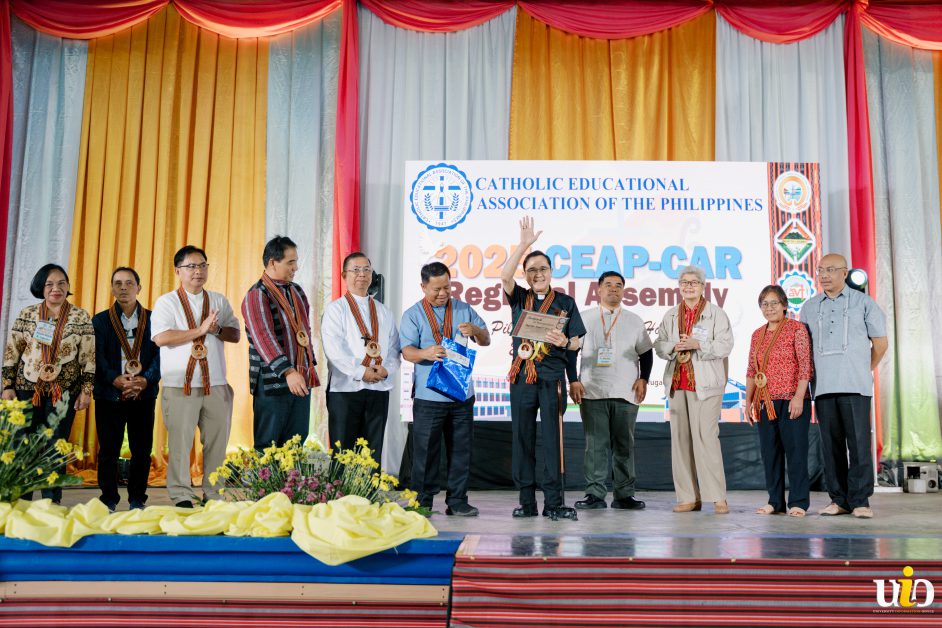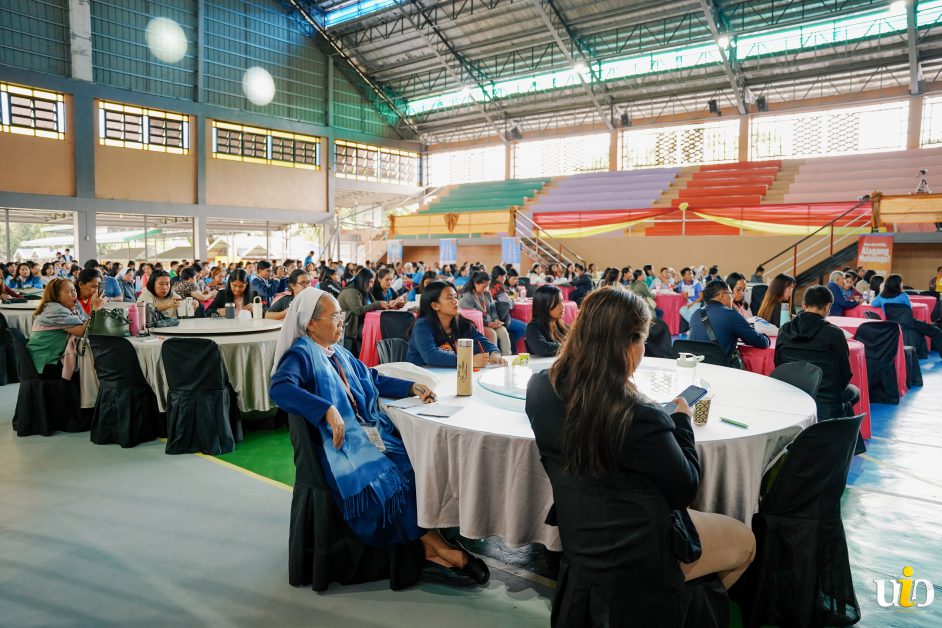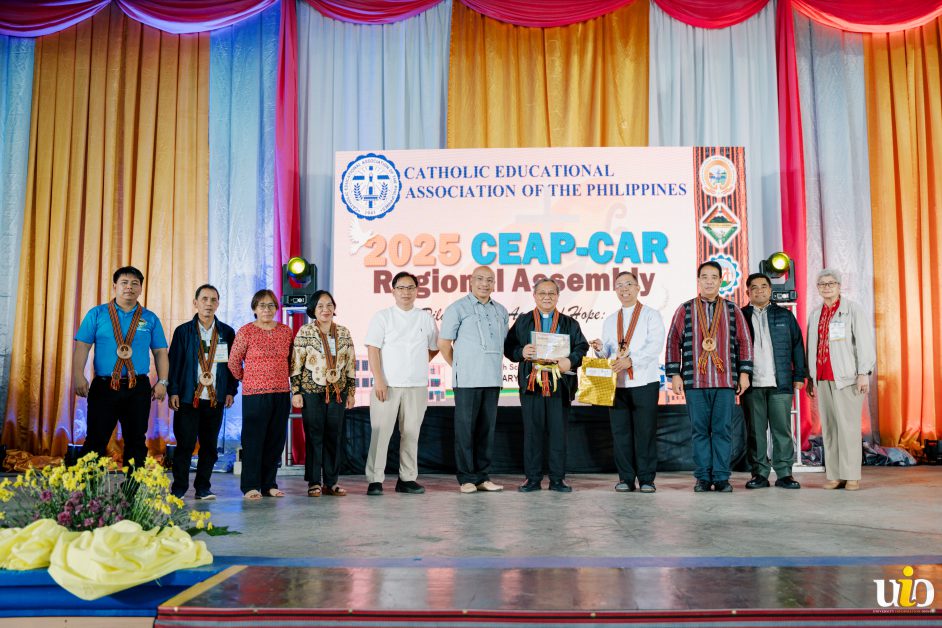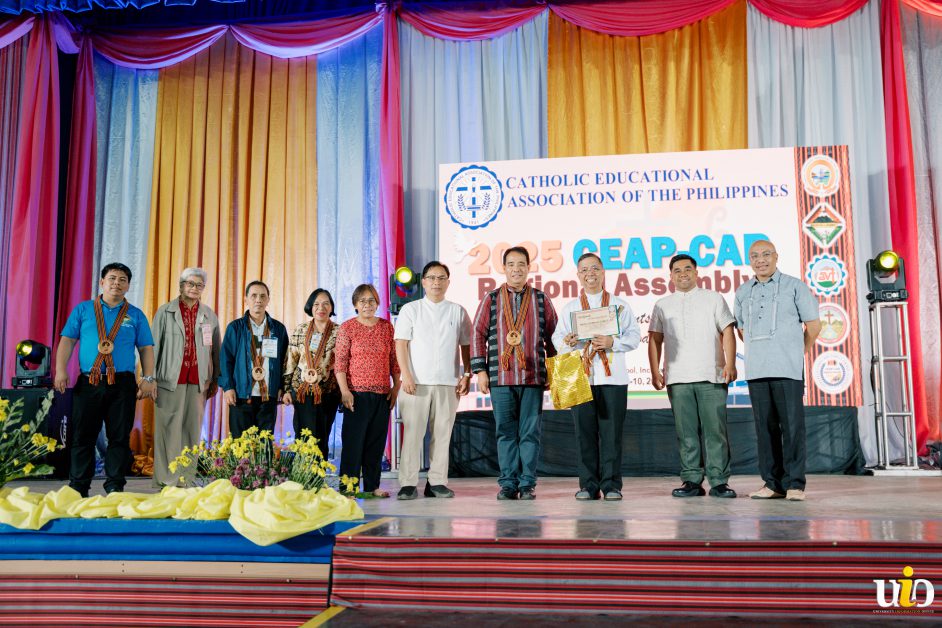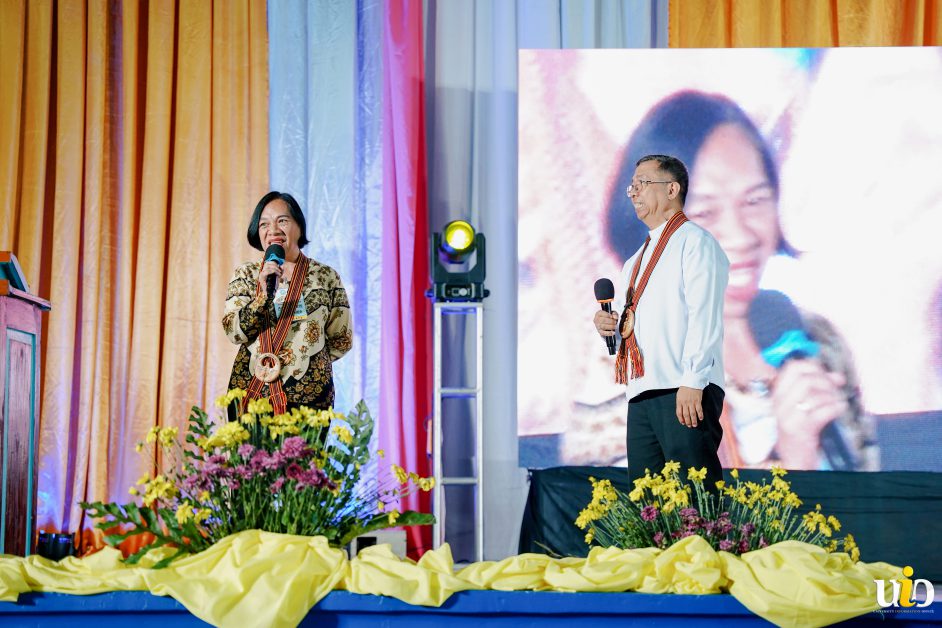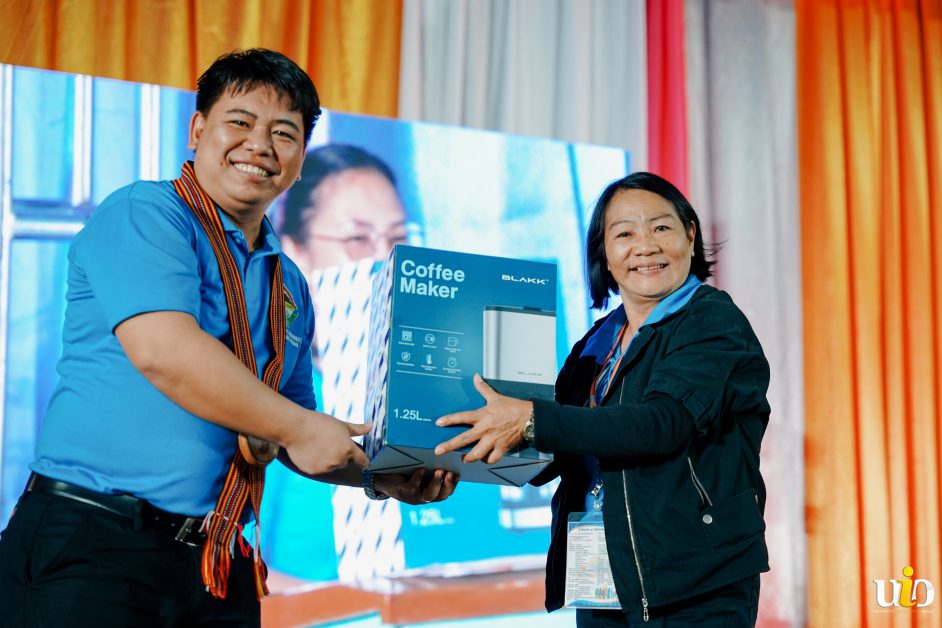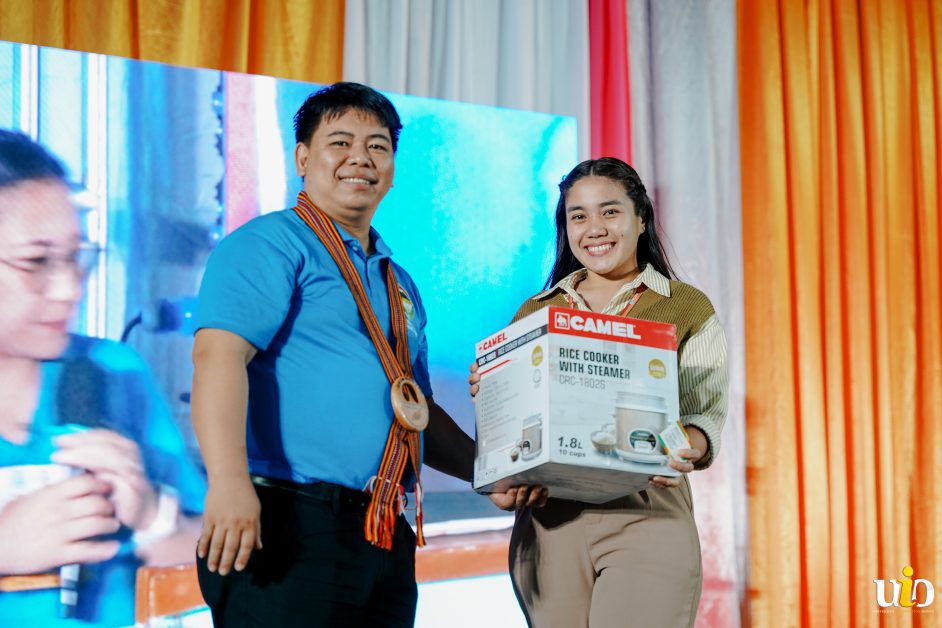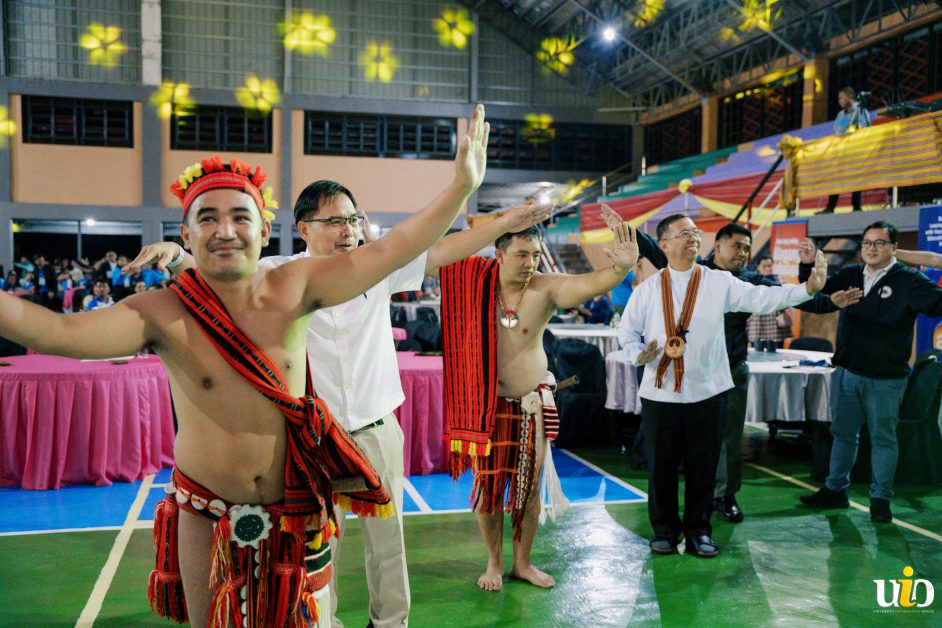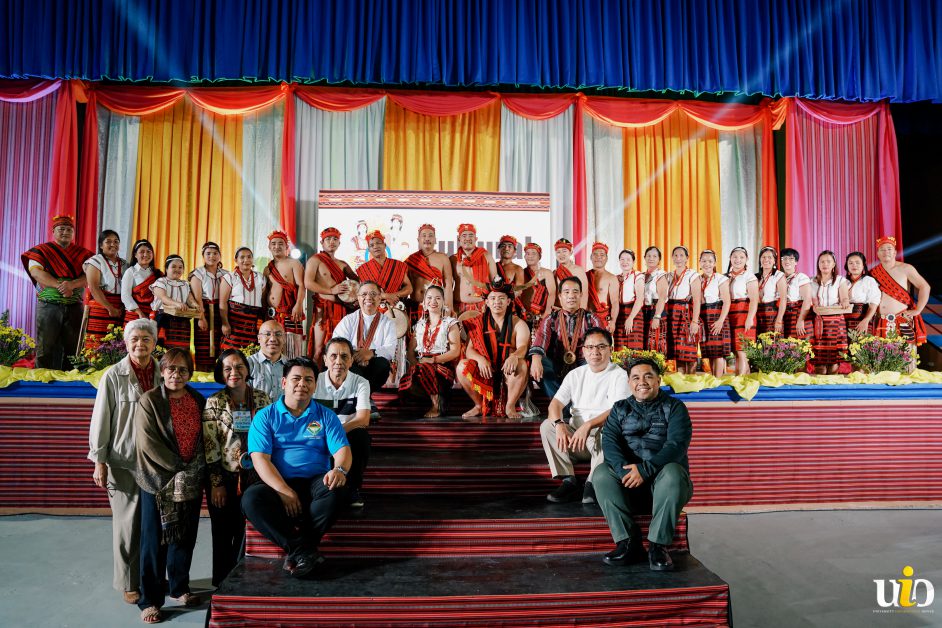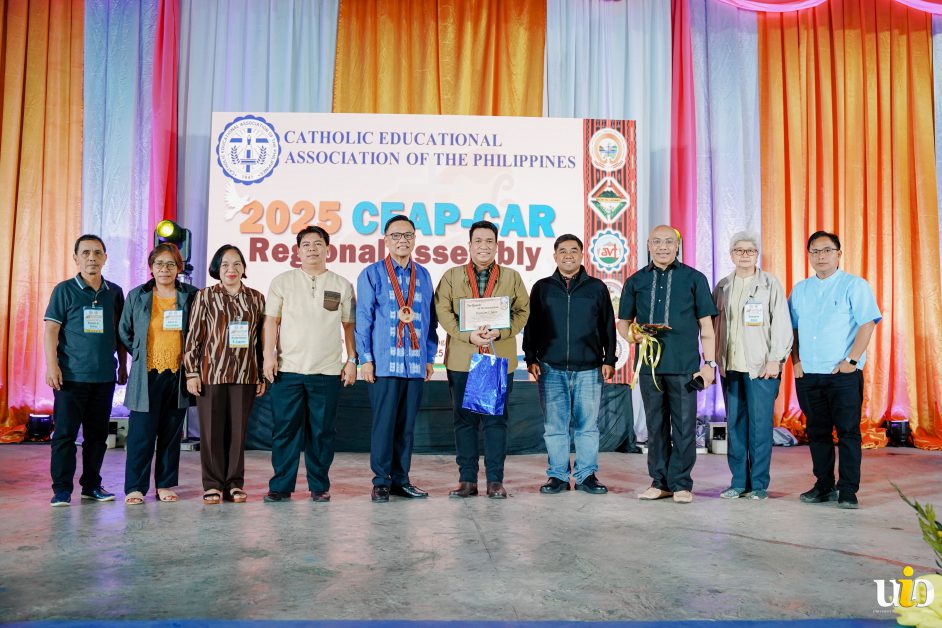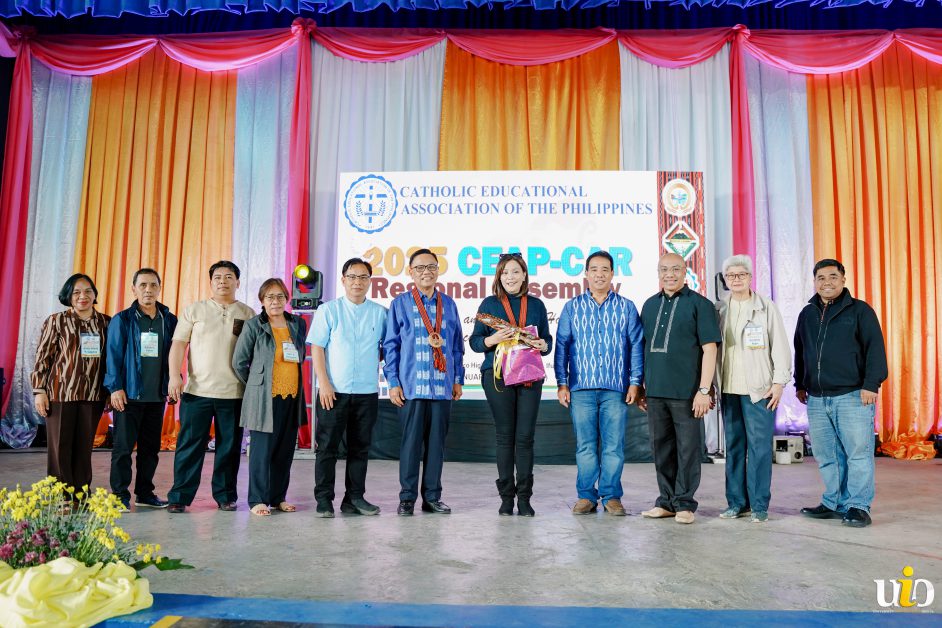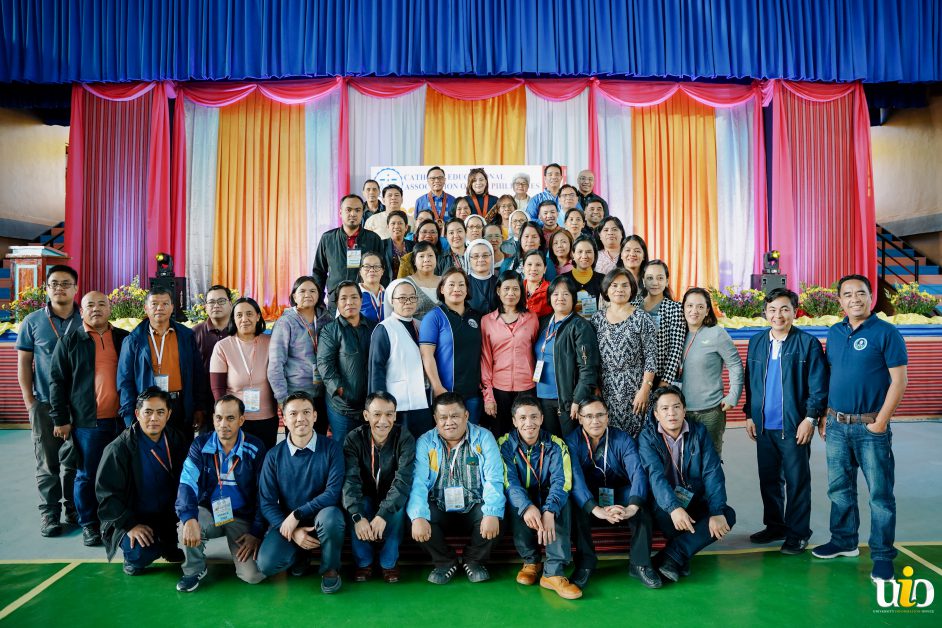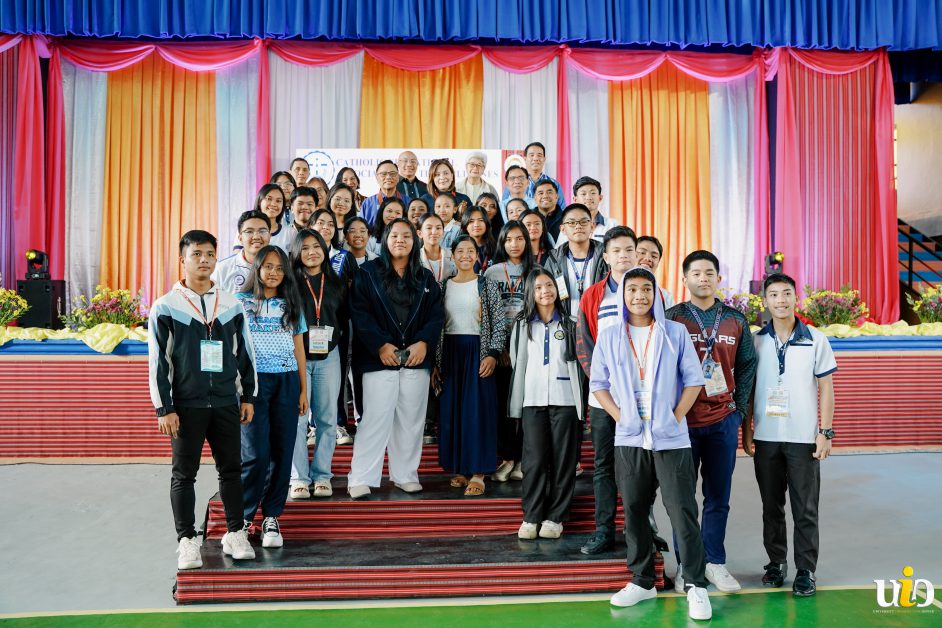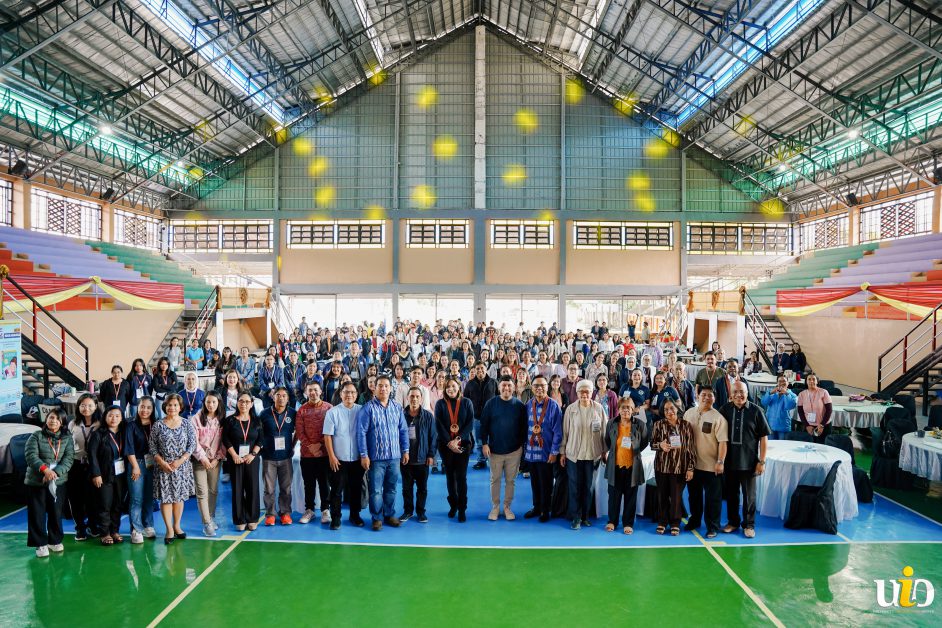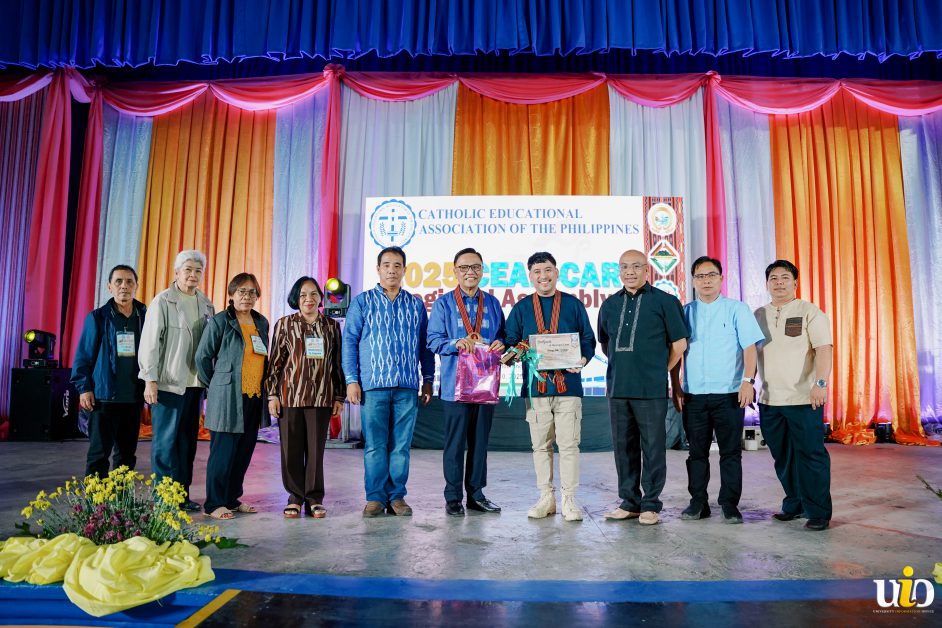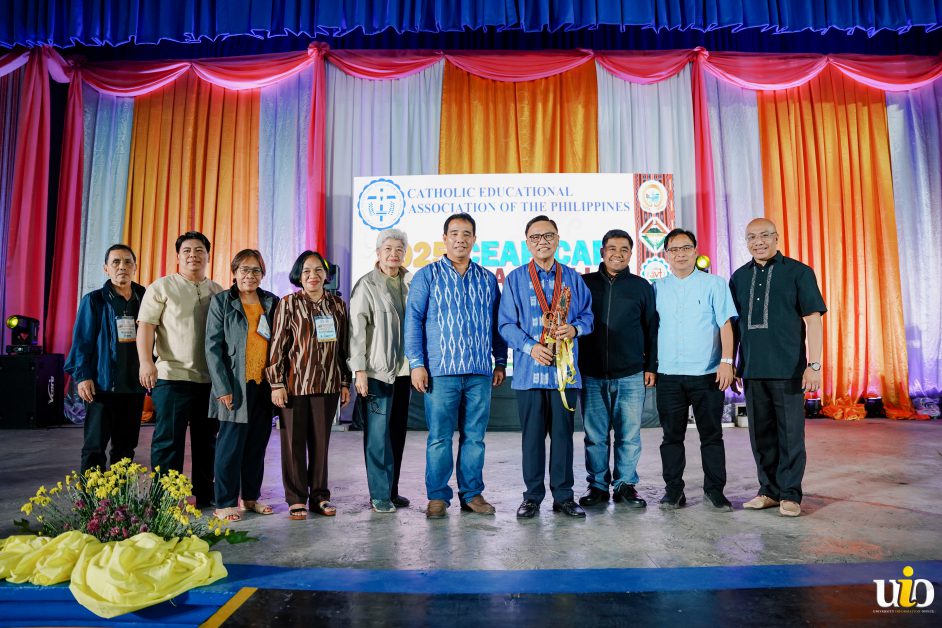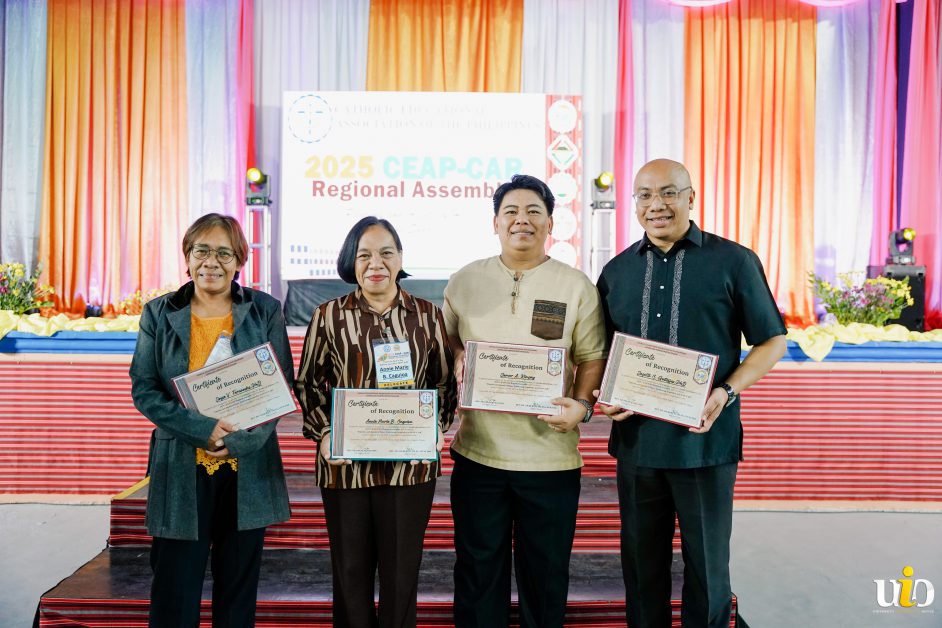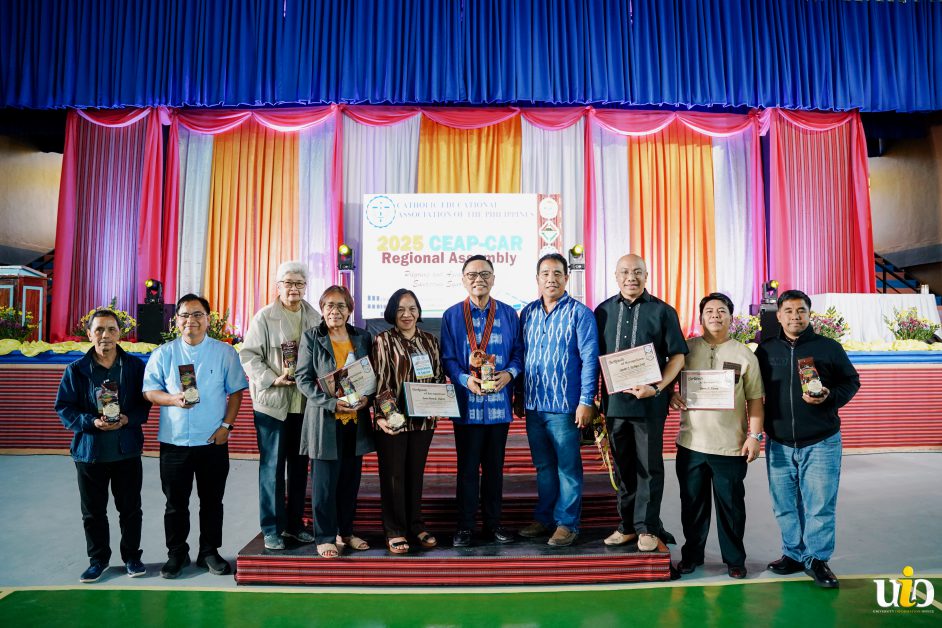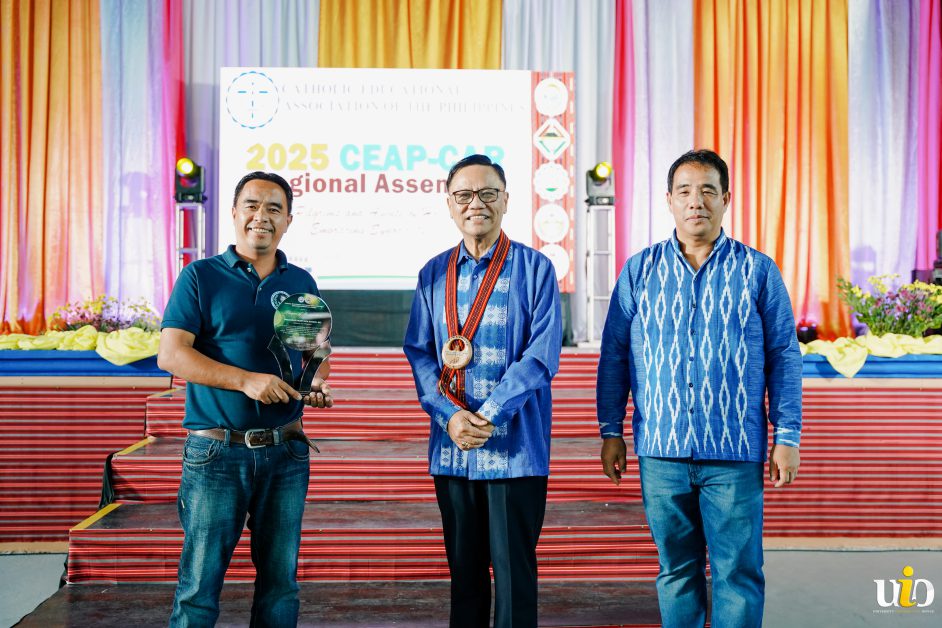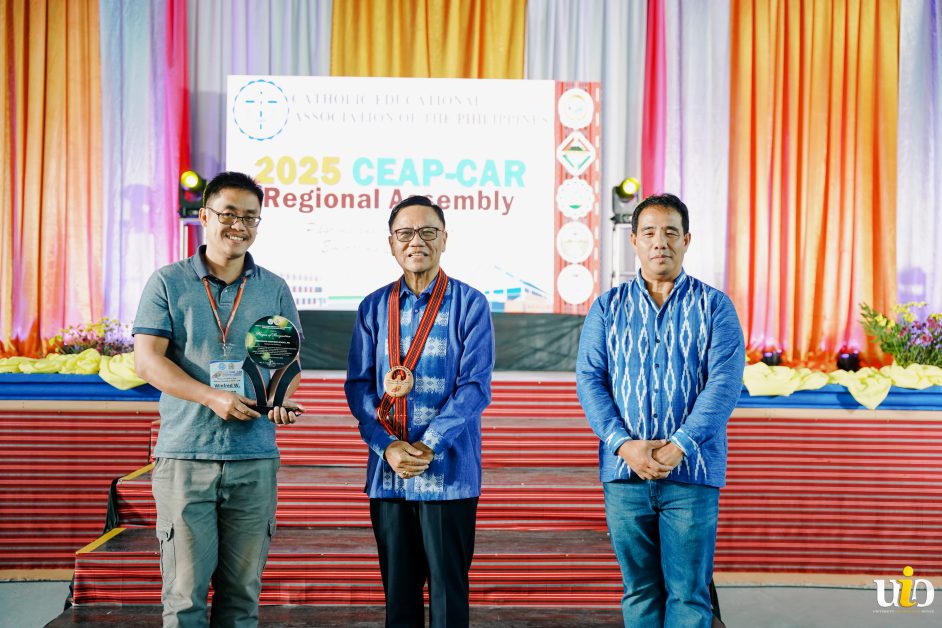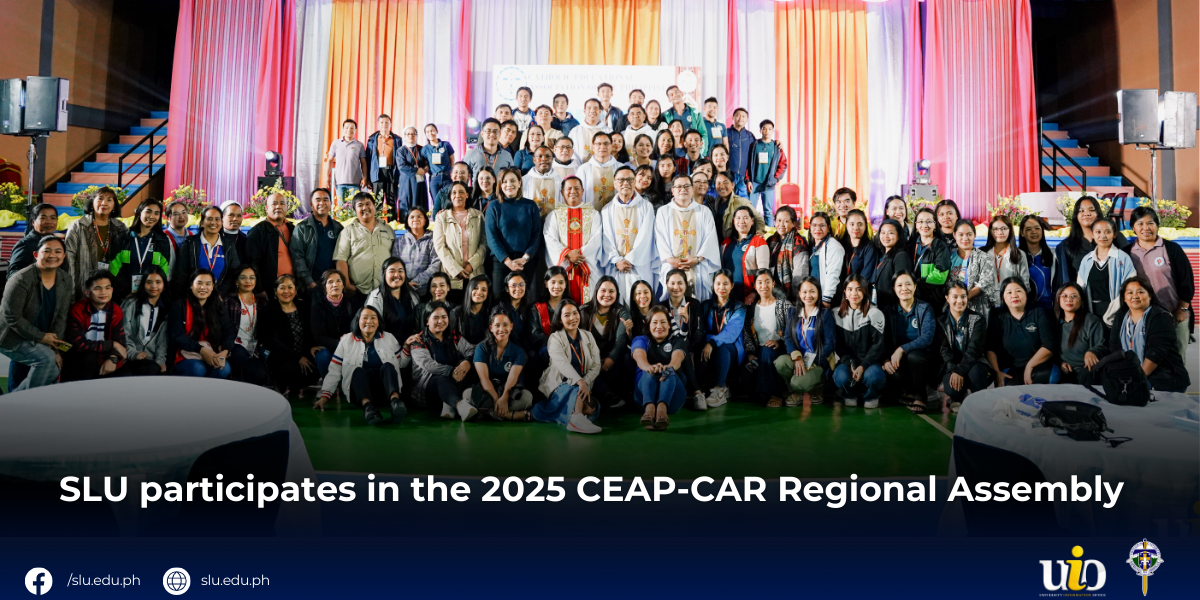Saint Louis University (SLU), led by its University President and Catholic Educational Association of the Philippines-Cordillera Administrative Region (CEAP-CAR) Regional Trustee, Rev. Fr. Gilbert B. Sales, CICM, PhD, took part in the 2025 CEAP-CAR Regional Assembly held on 09 to 10 January 2025 at the Don Bosco High School Inc. (DBHSI) in Lagawe, Ifugao.
Through the initiative of the DBHSI Director and CEAP-CAR’s Vice Regional Trustee, Fr. Felix Bay-ong; SLU Executive Assistant to the President and CEAP-CAR Secretary, Joselito C. Gutierrez, PhD; Catholic School Ifugao (CSI) Director, Mr. Jomar A. Kimpay; and the CEAP-CAR Council, the Regional Assembly was conducted primarily to identify the key issues tackled in Catholic schools and universities throughout CAR, forming strategic directions centering on the challenges that require strong partnerships and collaboration with other institutions for the improvement of educational outcomes.
The assembly gathered about 400 students, teachers, school administrators, and education stakeholders as selected representatives from different Catholic Schools across the region, categorized in the following jurisdictions:
- The Apostolic Vicariate of Bontoc-Lagawe Educational System (AVBLES) – Ifugao
- The Apostolic Vicariate of Tabuk Schools (AVTS) – Kalinga
- The Congregational & Family-Owned Schools
- The Diocese of Baguio Schools (DOBS)
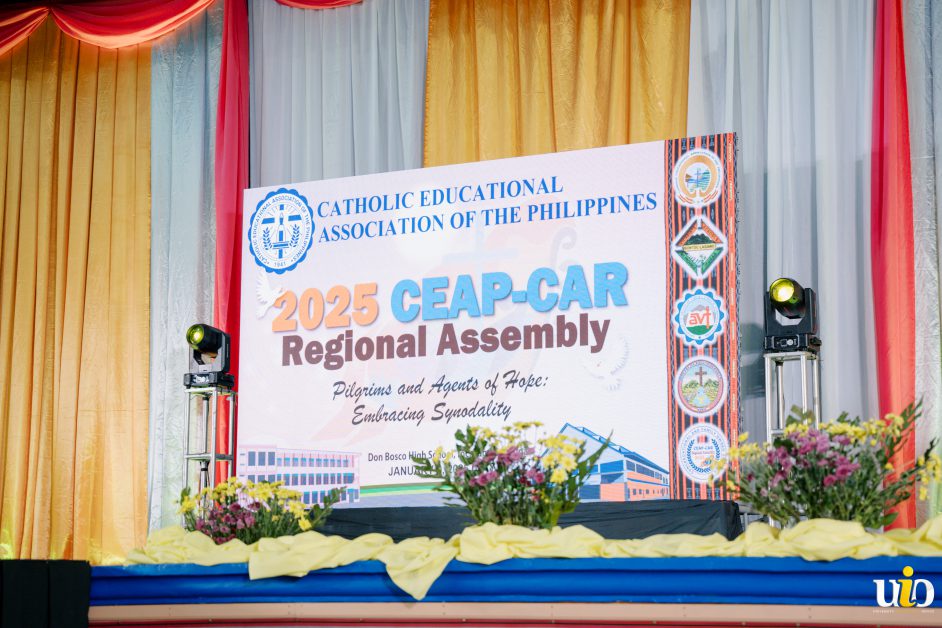
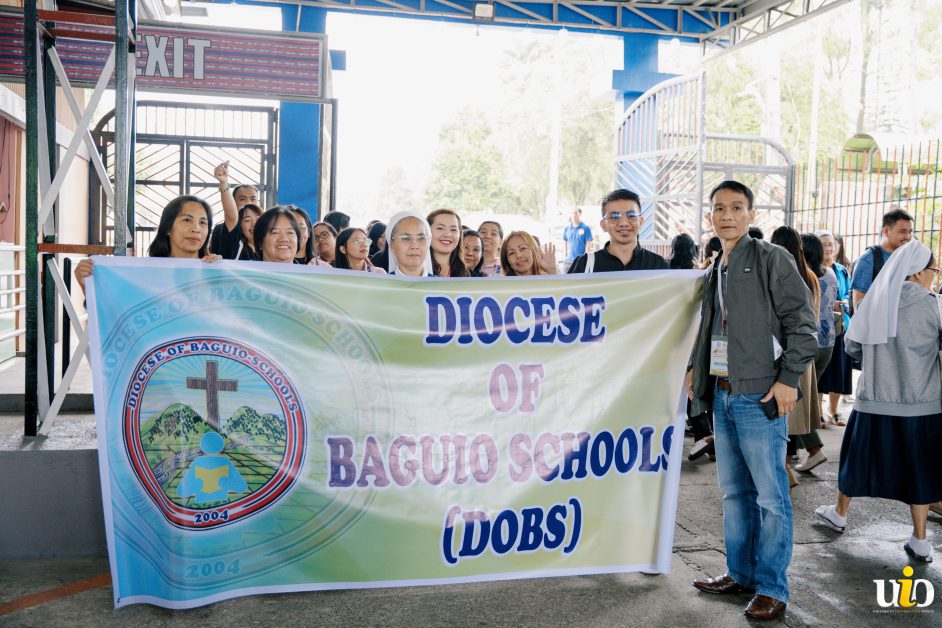
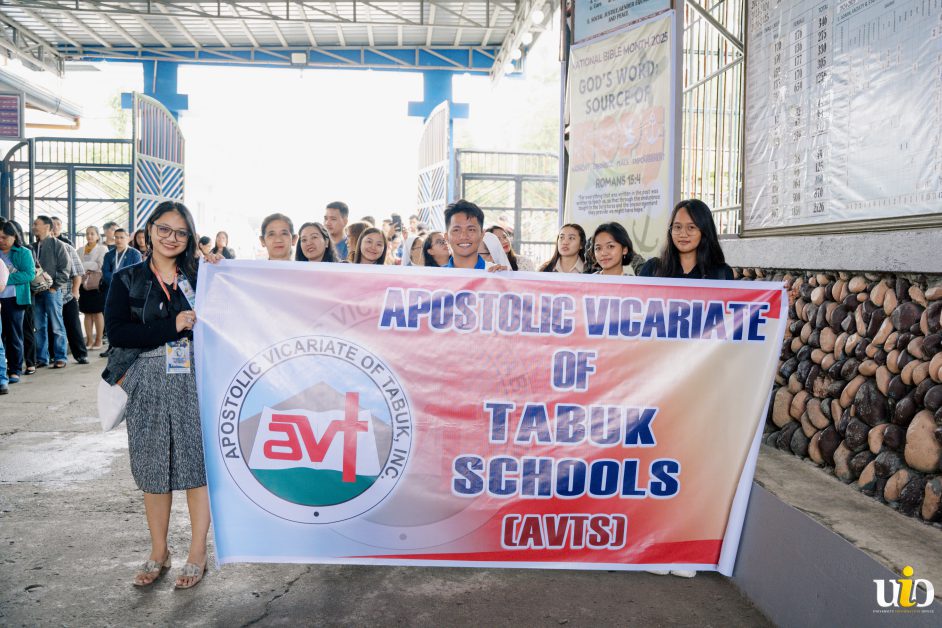
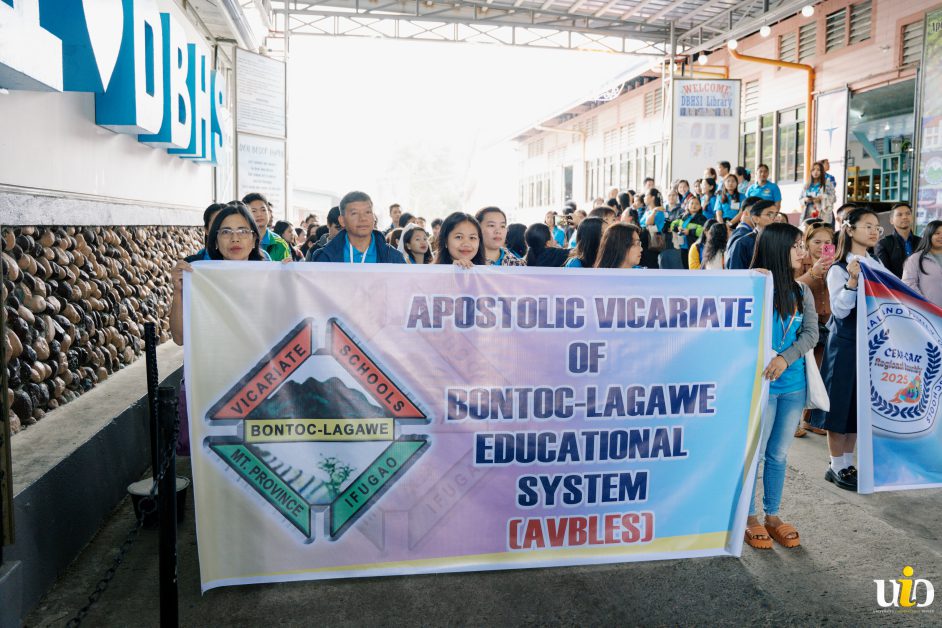
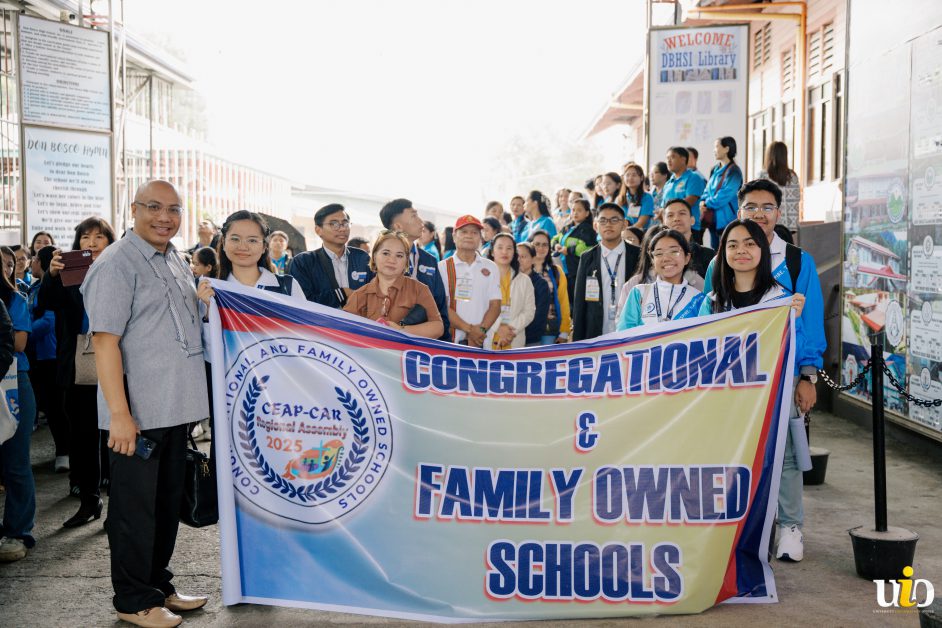
Day 1, 09 January: A Step to Synodality and Cultural Synergy
The eventful day began with a blessing during the Opening Eucharistic Celebration held at Saint Mary Magdalene Church. This sacred occasion was presided over by His Excellency, Most Rev. Valentin C. Dimoc, DD, Bishop of the Apostolic Vicariate of Bontoc-Lagawe, Ifugao. He was joined by Most Rev. Prudencio P. Andaya, Jr., CICM, Bishop of the Apostolic Vicariate of Tabuk, Kalinga; Most Rev. Rafael T. Cruz, DD, Bishop of the Diocese of Baguio, Benguet; and Most Rev. Bartolome G. Santos Jr., DD, Bishop of the Diocese of Iba, Zambales. The bishops were accompanied by CEAP-CAR priests.
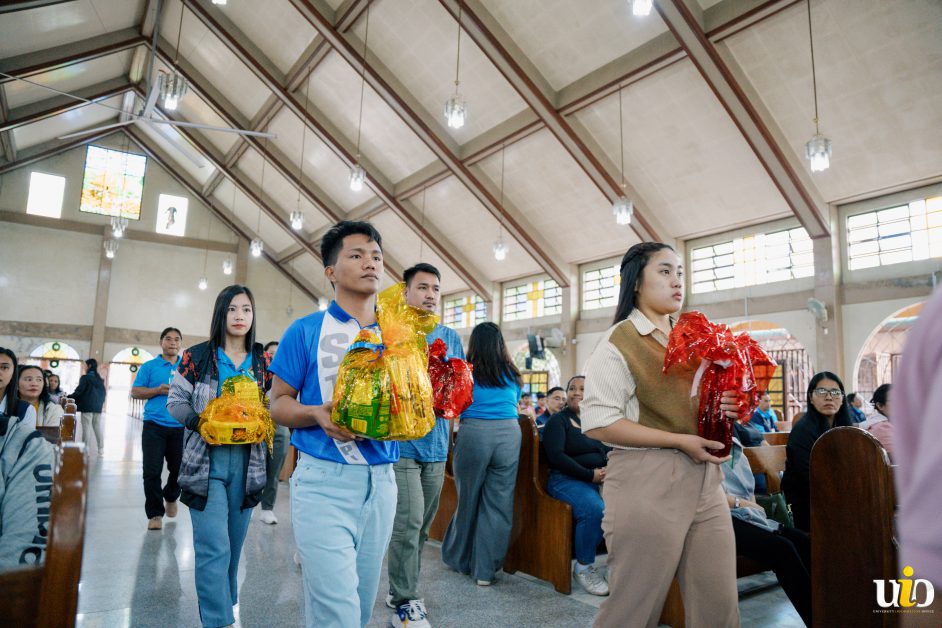
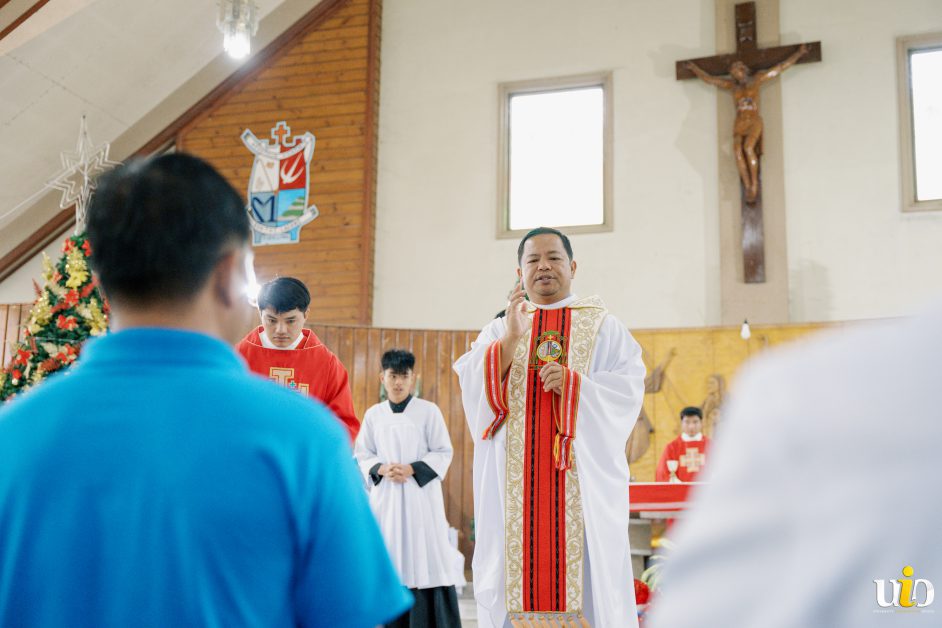
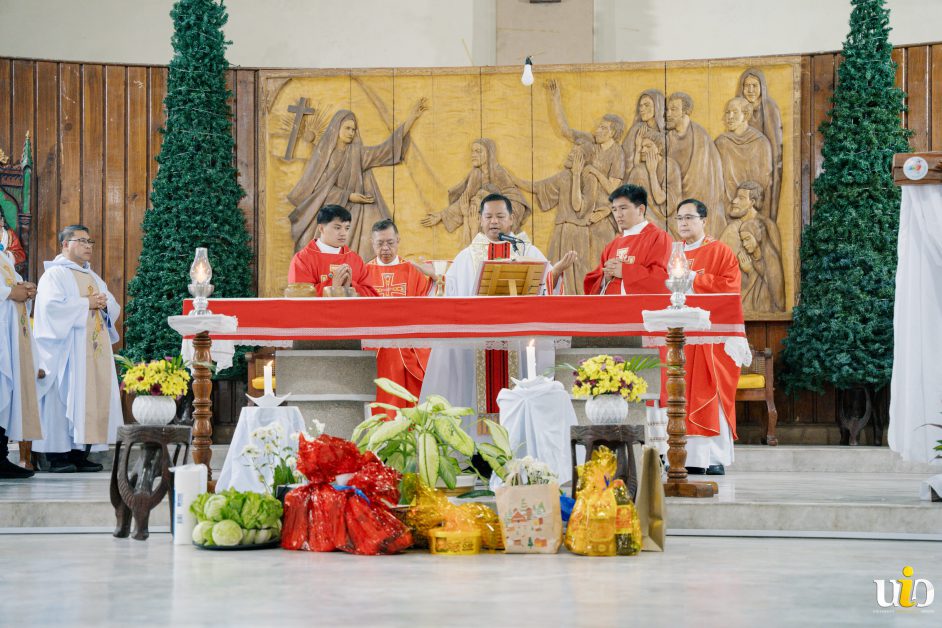
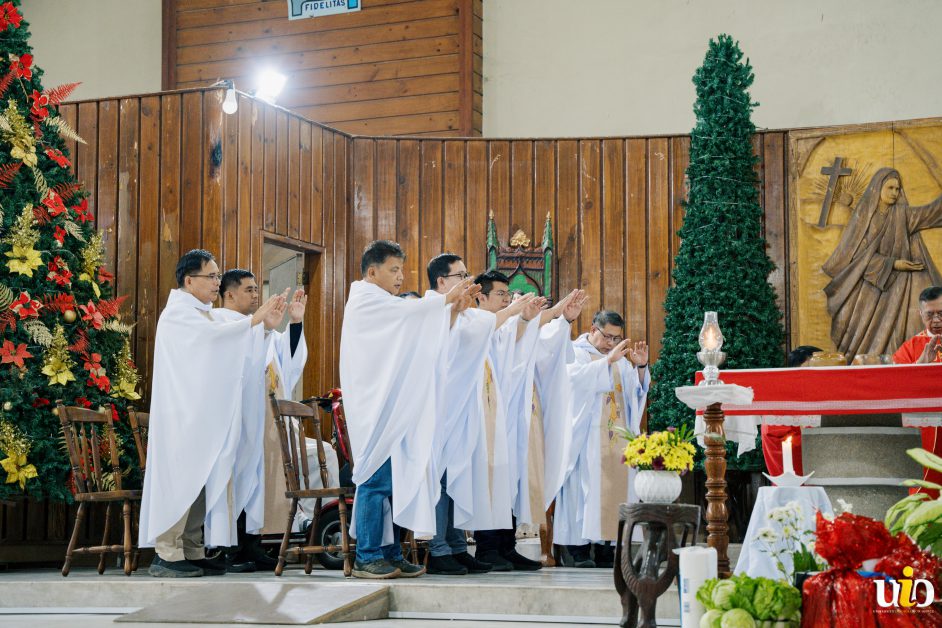
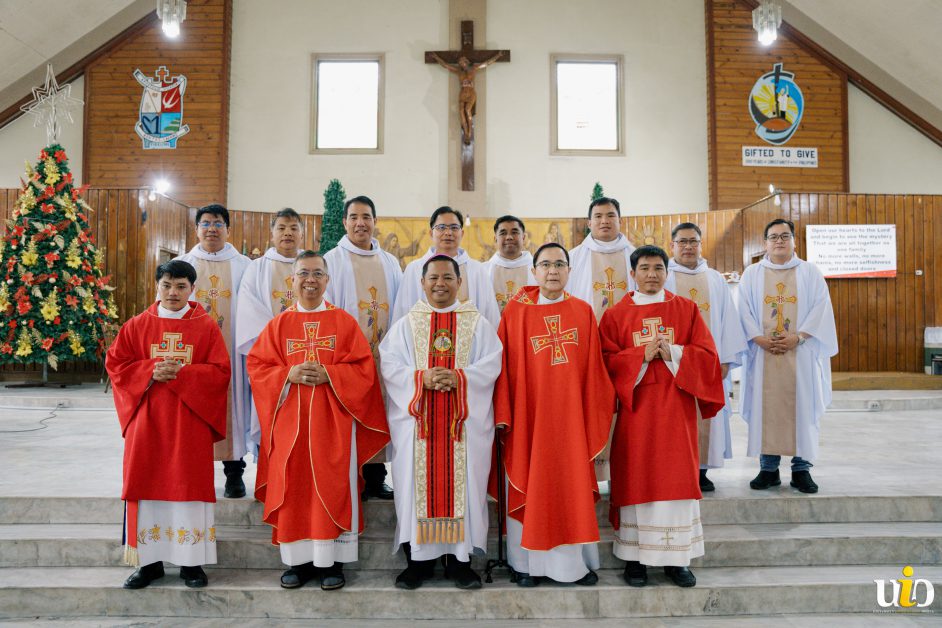
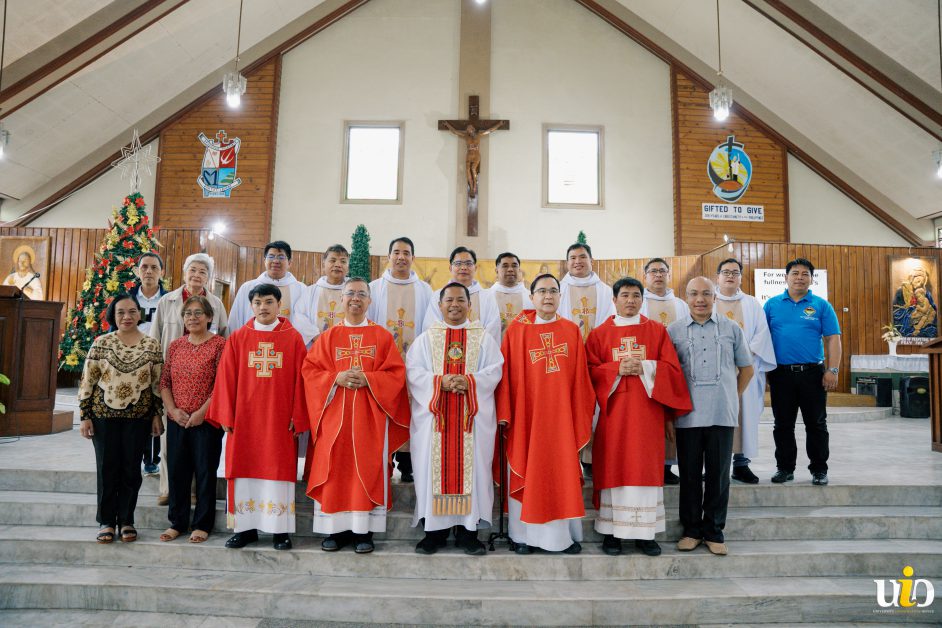
A grand reception followed with a parade entrance featuring participating schools, accompanied by the DBHSI Drum & Lyre Corps. The program officially opened with the entrance of the CEAP-CAR Council Members, followed by a ceremonial presentation of colors and a doxology, both led by DBHSI under the direction of AVBLES. This was succeeded by the singing of the Philippine National Anthem and the CEAP Hymn, titled “Isang Hwarang Katoliko.”
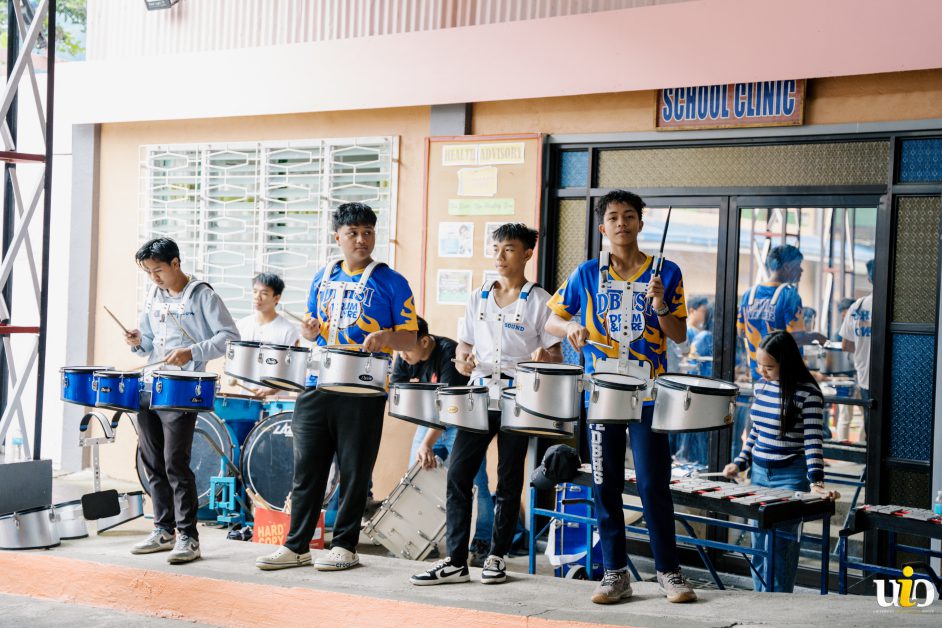
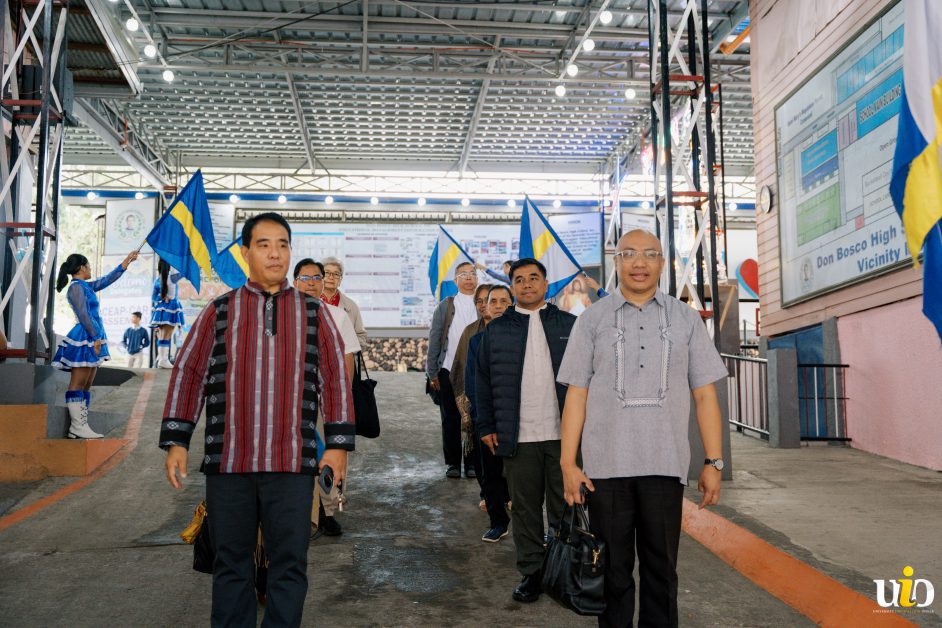
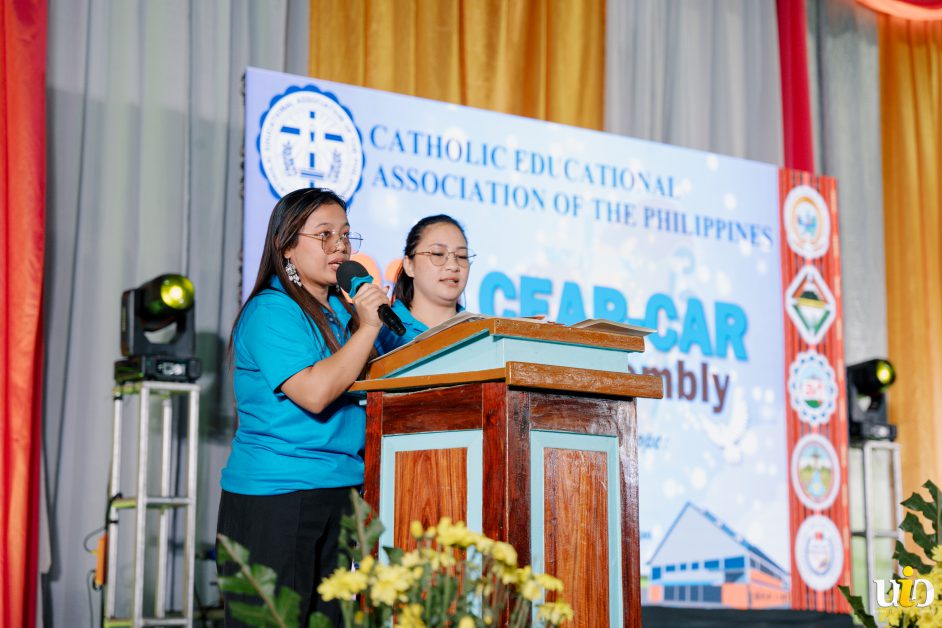
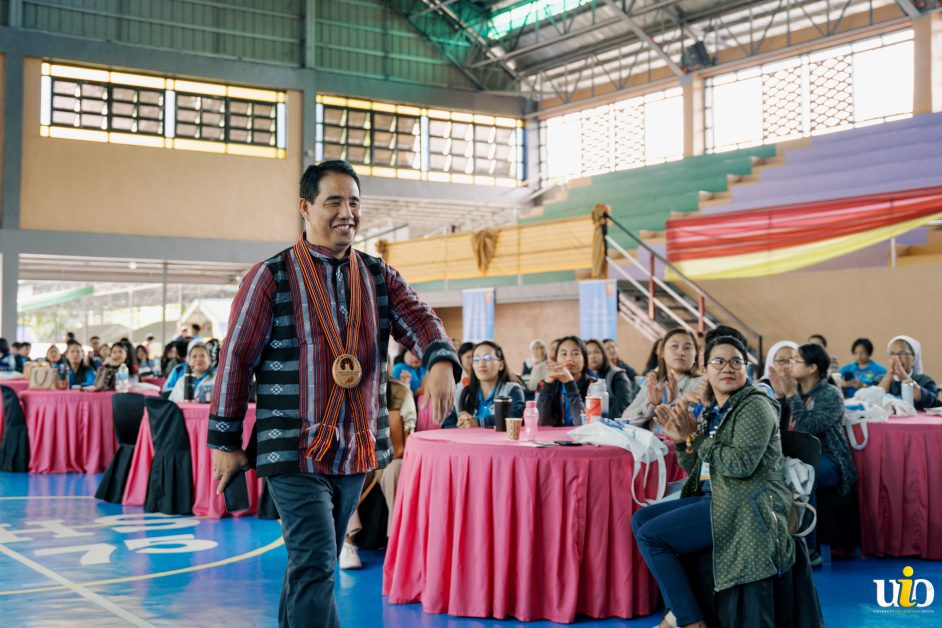
Rev. Fr. Bay-ong welcomed the delegates and gave a brief overview on the different Catholic Schools in Mountain Province (CSMP). He shared the ABVLES schools’ vision to fully become institutions of living tradition and quality education saying, “Our schools are located in the rich cultural heritage of both Mountain Province and Ifugao, where we express our public and Christian identity, making light of today’s Christian Faith in the traditions of our people… Let’s take advantage of this chance and leave this conference feeling motivated, inspired, and prepared to face the difficulties that lie ahead,” Fr. Bay-ong remarked.
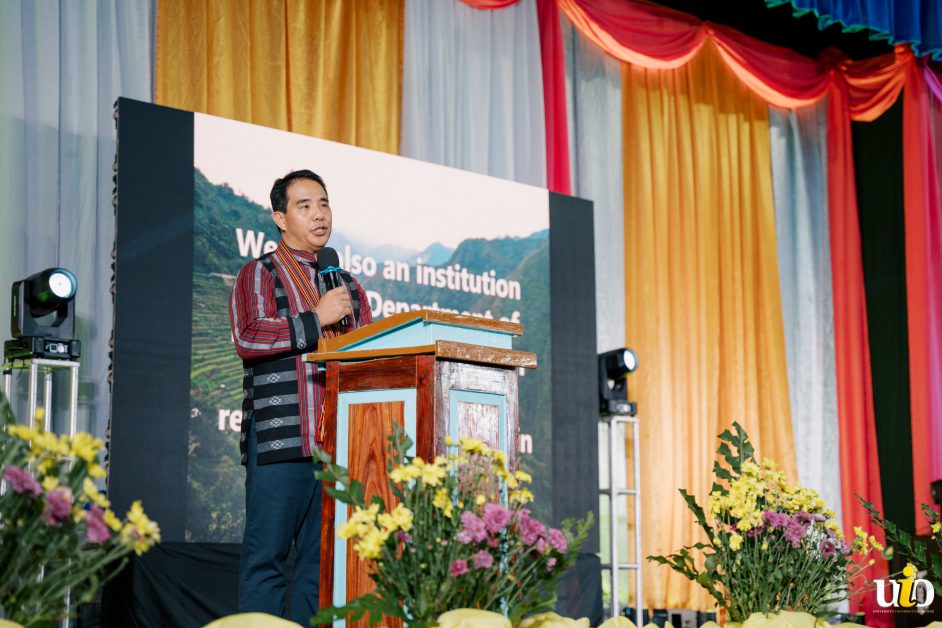
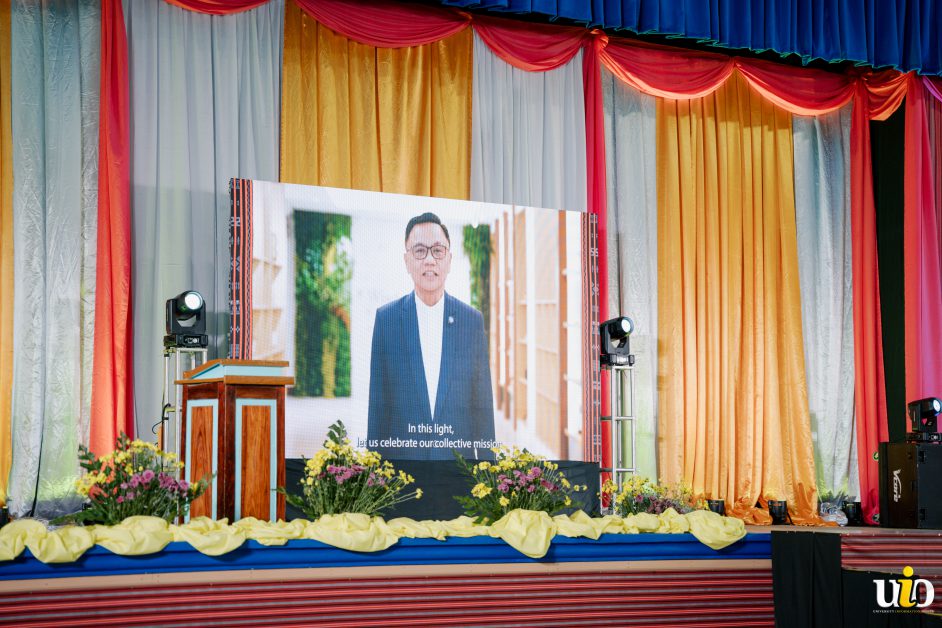
As a reminder of the event’s significance, Rev. Fr. Sales, through a recorded video message, highlighted the importance of the shared journey as educators and leaders in Catholic Schools. “In this light, let us celebrate our collective mission not only to educate but to inspire our students to become compassionate leaders and agents of change in their communities. As we embark on this spiritual and educational pilgrimage, let us affirm our commitment to being a beacon of hope in a world that often feels fragmented by fostering an inclusive environment that values dialogue and mutual respect,” Fr. Sales stated.
The speech was followed by the cultural performance by the School of Living Tradition from Saint Vincent’s School Inc. (SLT-SVSI) of Bontoc, Mountain Province, under AVBLES.
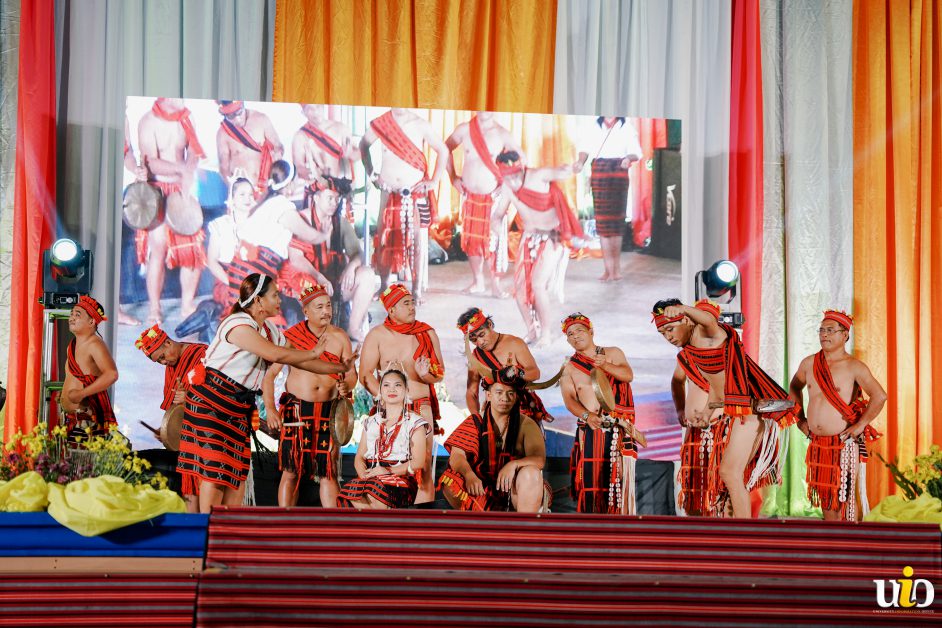
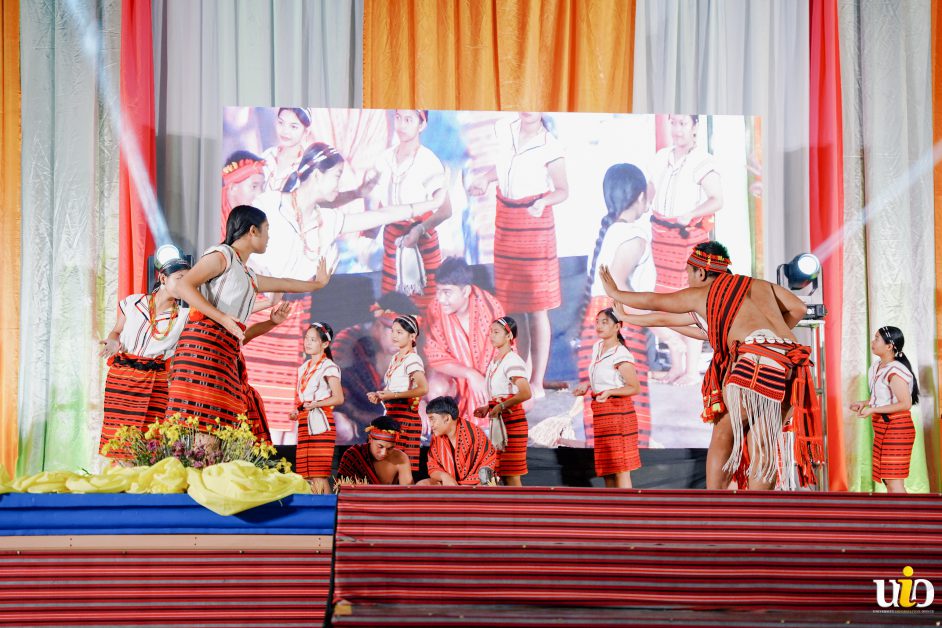
The Bishop of the Diocese of Baguio, Most. Rev. Rafael T. Cruz, DD, gave his keynote speech centered on “the role of synodality as a way of life among educators and Catholic students,” using existing values instilled within the Bible and the teachings of God as a model in strengthening one’s relationship with the Lord, one’s self, and to other members of the community.
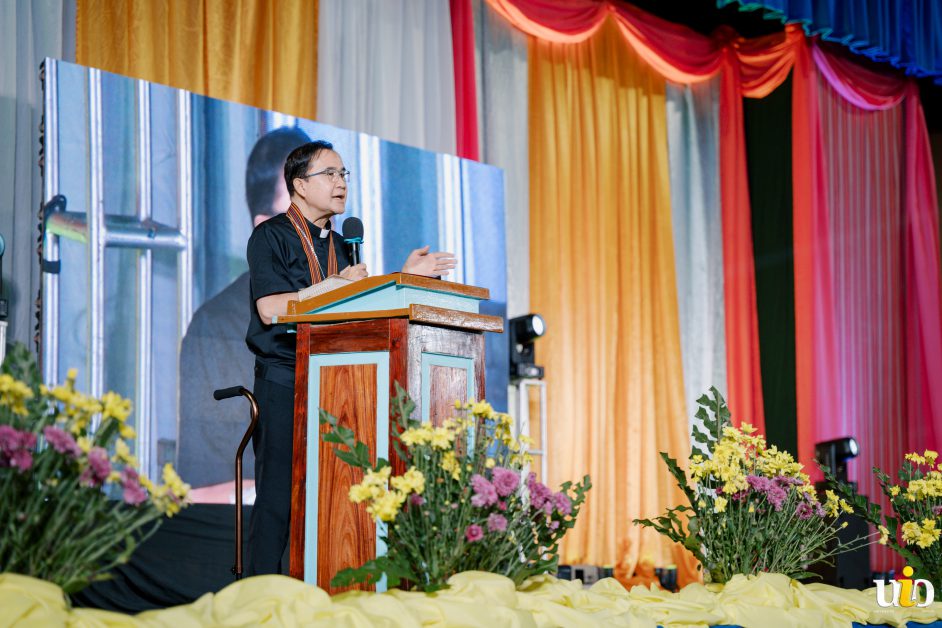
The afternoon seminar kicked off with the Synthesis Report of 2023, “Synod on Synodality,” with the subtheme “Synodal Church: Communion, Participation and Mission” presented by the Bishop of the Apostolic Vicariate of Tabuk, Most Rev. Prudencio P. Andaya, Jr., CICM, DD. The 52-page document contains a summary of the synod of the bishops in October 2024, shedding light on the definitions of synodality by Pope Francis. “With this, the synod on synodality should revitalize our church on the move so that we may be able to live our faith in God more meaningfully. The synod is not just an event; it is a journey. A synod is not just a meeting; it is the life of the church,” Bishop Andaya said.
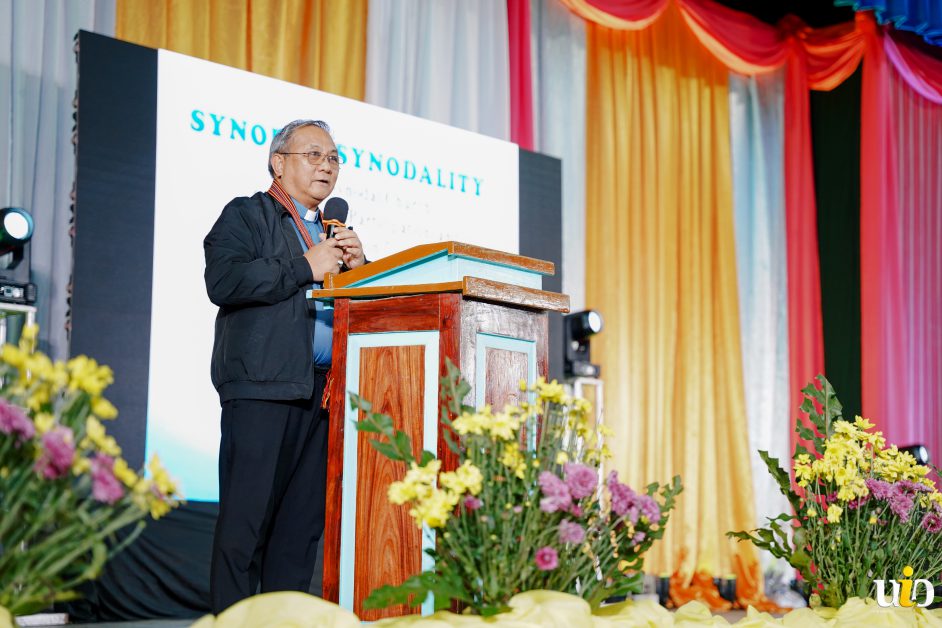
The Bishop of the Diocese of Iba, Most Rev. Bartolome G. Santos, Jr., DD, then discussed the topic, “Assisting Small Catholic Schools for their Sustainability” under “Journeying with the Catholic Schools in CEAP-CAR.” He talked about his journey and lessons learned from managing the educational system of the Diocese of Iba, Zambales, including problems encountered in restoring the Christ the King Catholic School before the pandemic in 2019. “God shows the way how to solve the problem. For us from the Diocese of Iba Educational System, the COVID-19 (Pandemic) became an opportunity, an occasion to be synodal,” Bishop Santos recounted.
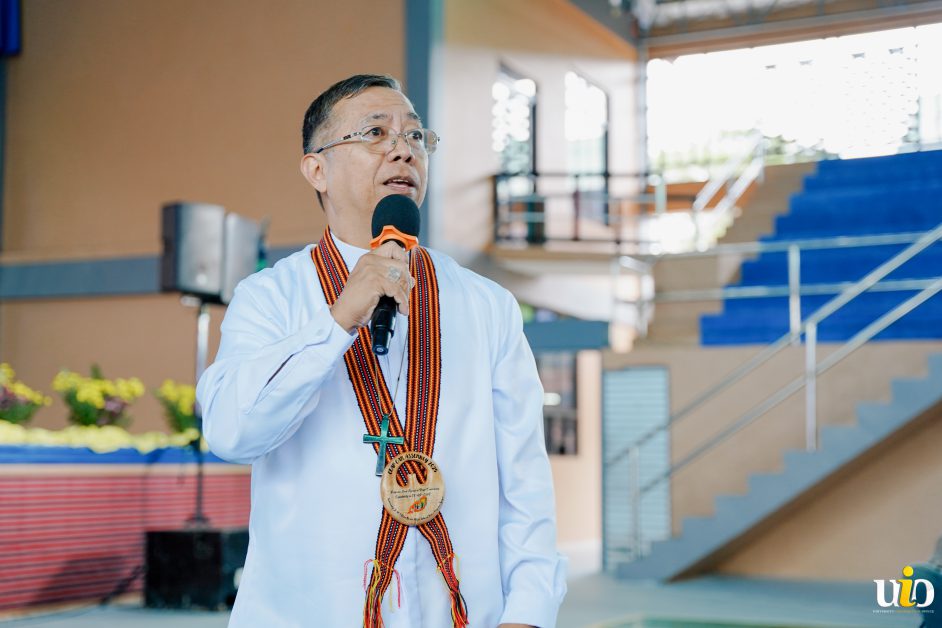
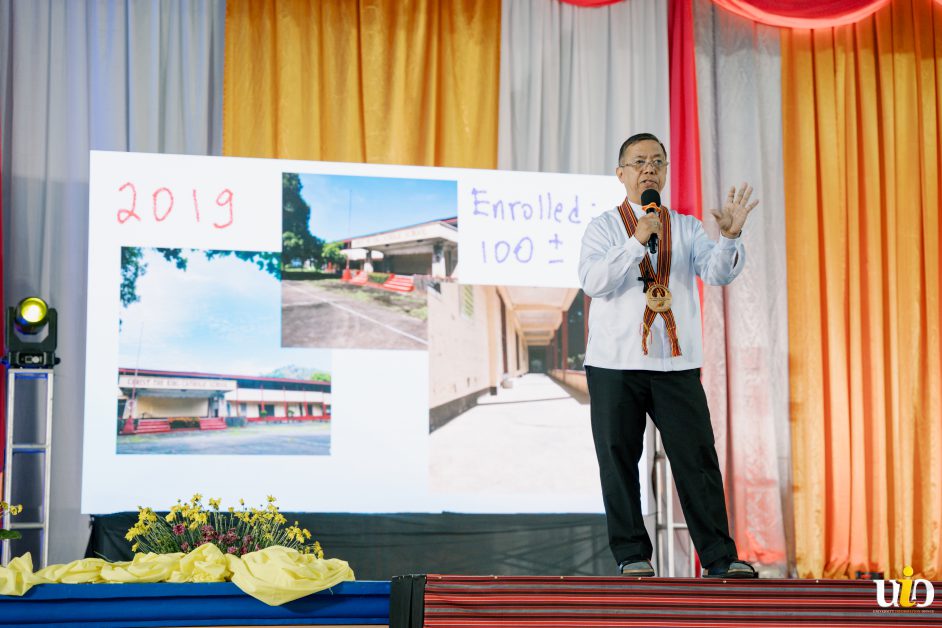
Moreover, he provided a brief scope on the governance of the bishop and the diocese in Catholic schools through the lens of the sole corporate world and the components of governance, curriculum, finance, and the paradigm of steward-servant-synodal leadership of the bishop in the management of Catholic schools.
CEAP Executive Director, Mr. Allan I. Arellano, provided national updates on the organizational system of the regional association, CEAP’s vision and mission, activities from August to December 2024, the participation and performance of schools per region, CEAP funds, assets, and financial resources, and the evaluation results for the 2024 CEAP National Convention.
Also, Mr. Arellano highlighted the goals of CEAP:
- Solidarity and Synodality: “the direction of the church, which led to the celebration of the jubilee this year.”
- Transformative Education: “the activities of CEAP promoting the Philippine Catholic School Standards and other activities in the Christian Formation Program.”
- Discernment and Advocacy: “our advocacy needs us to form partnerships with other organizations, such as the Coordinating Council of Private Educational Associations (COCOPEA) and the Private Education Assistance Committee (PEAC).
Additionally, CEAP President, Rev. Fr. Karel S. San Juan, SJ, shared his inspirational message reflecting on synodality as the spirit of CEAP under spirituality, sustainability, service to community and nation, stewardship creation, safety and mental health, strong organization and management, and servant and synodal leadership. “It is such a wonderful and blessed way to start the new year; to gather as fellow educators pursuing a common mission of Catholic education, to gather as a community inspired, passionate, and committed to this mission,” Fr. San Juan said.
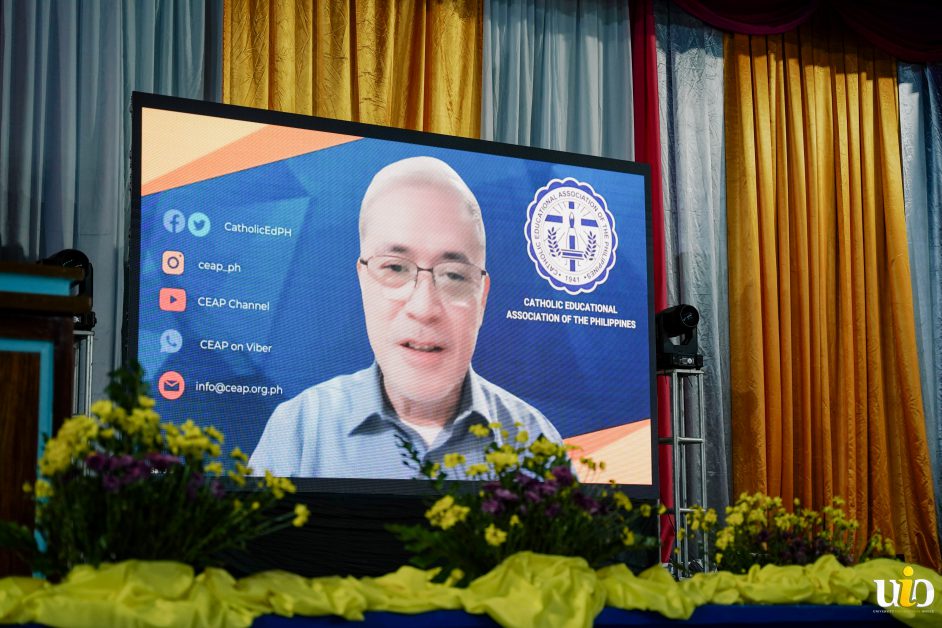
Wrapping up the day’s program, cultural presentations from DBHSI’s History Club Cultural Dancers, St. Joseph School Inc. of Kiangan students, and the Ifugao Provincial Government Employees Cultural Ensemble (IPGCE) presented the various forms of native dances and ceremonial rites in the municipality such as the Dinuyya, Uyaoy/Uyauy, and a shortened form of Hudhud, a traditional oral narrative chant. Relishing the blessing and hospitality expressed in their rich heritage and tradition, the CEAP-CAR engaged in a community dance, a meaningful conclusion to the first day of the regional assembly.
Day 2, 10 January: Pathway to Progress – Synodality in Catholic Education
The last day of the assembly began with a morning prayer led by AVTS followed by the delivery of instructions for the breakout sessions by Dr. Gutierrez, and assigning the delegates to their rooms to discuss and evaluate the previous day’s reports on “Synod of Bishops” and the Second Congressional Commission on Education (EDCOM II).
Breakout sessions were held on the first floor of Don Bosco’s Main Building and Gymnasium, attended by administrators, teachers, parents, alumni, and students. The sessions were facilitated by Ms. Annie B. Caguioa, CEAP-CAR Treasurer and Directress of Saint Louis School Inc.; Mr. Kimpay, Director of Catholic Schools in Ifugao; Dr. Joyce V. Fernandez, CEAP-CAR Auditor; and Dr. Gutierrez. Participants were tasked with interpreting the talks by identifying three main concerns or issues from the reports, contextualizing them based on their needs and experiences, discussing actions Catholic schools could take to address these issues, and proposing strategies for further resolution. The session concluded with participants sharing their findings in a plenary session.
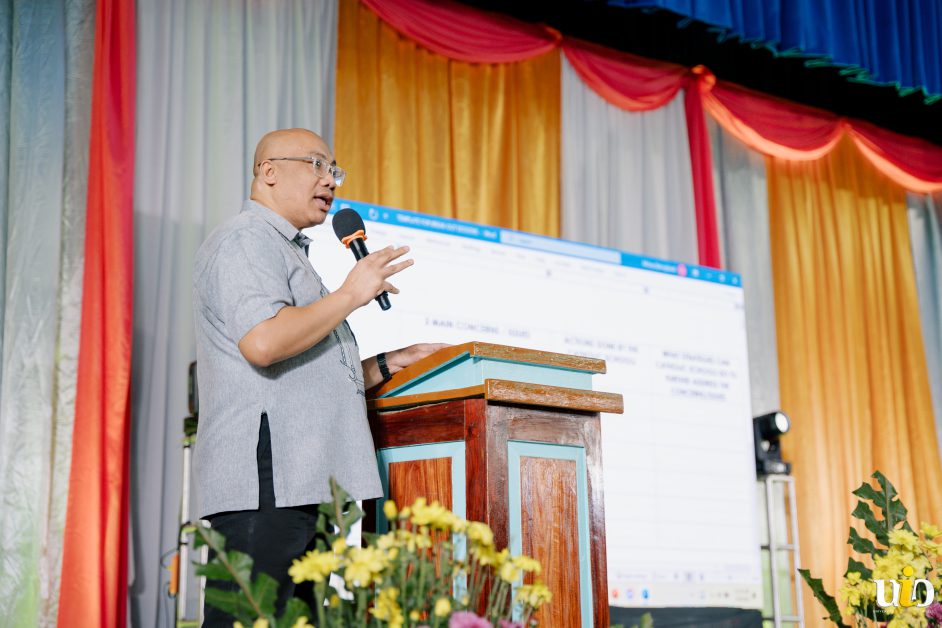
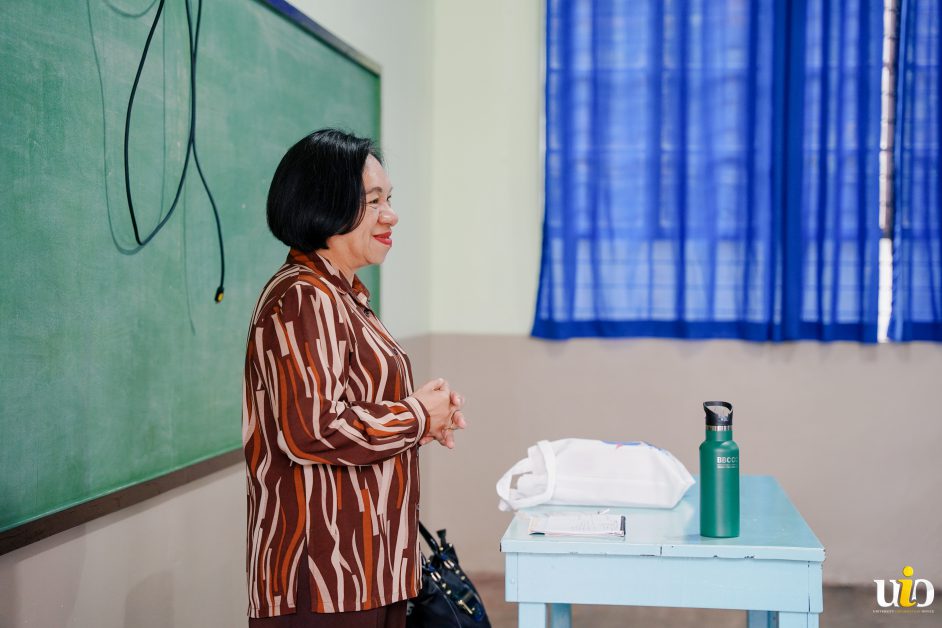
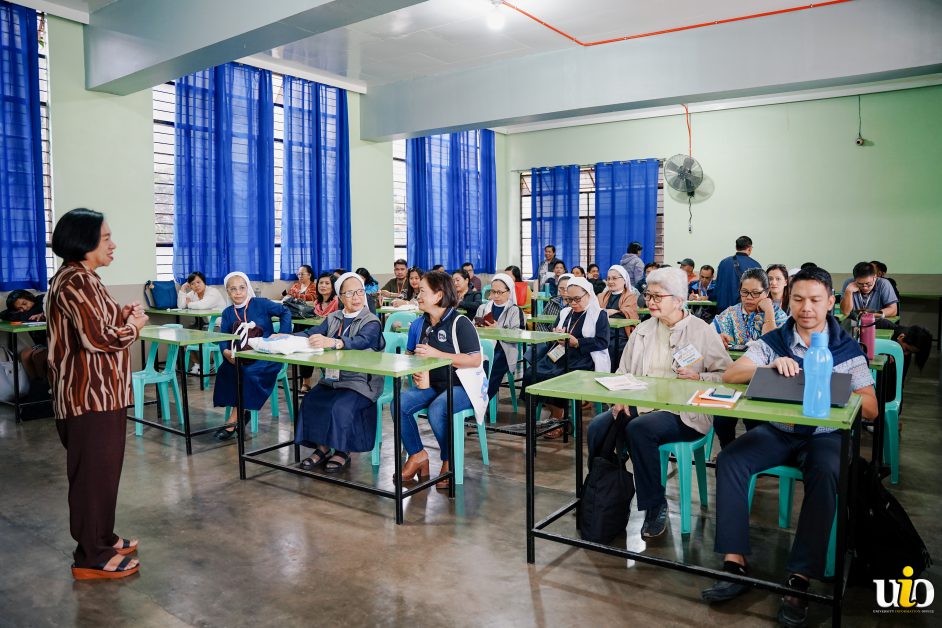
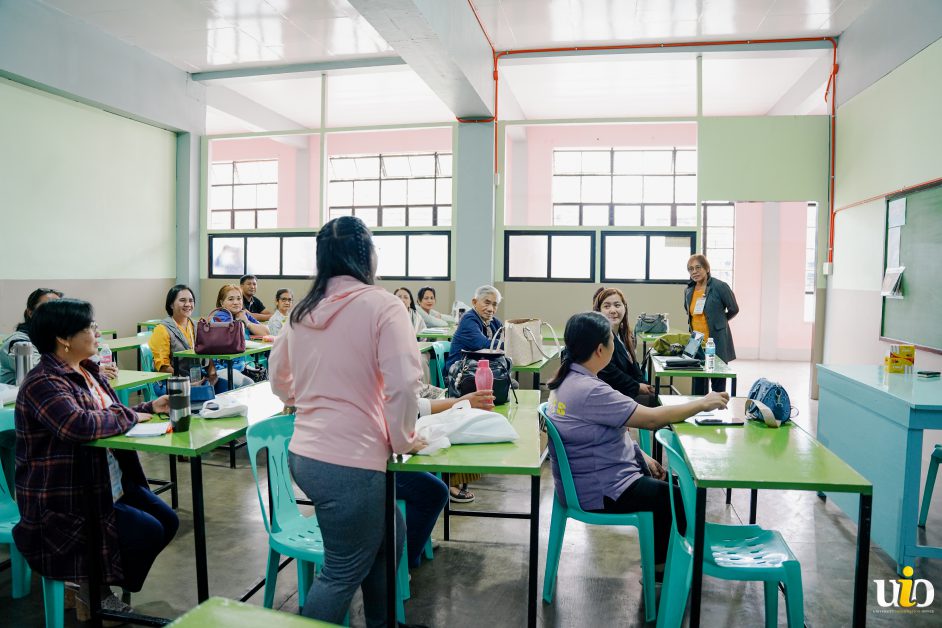
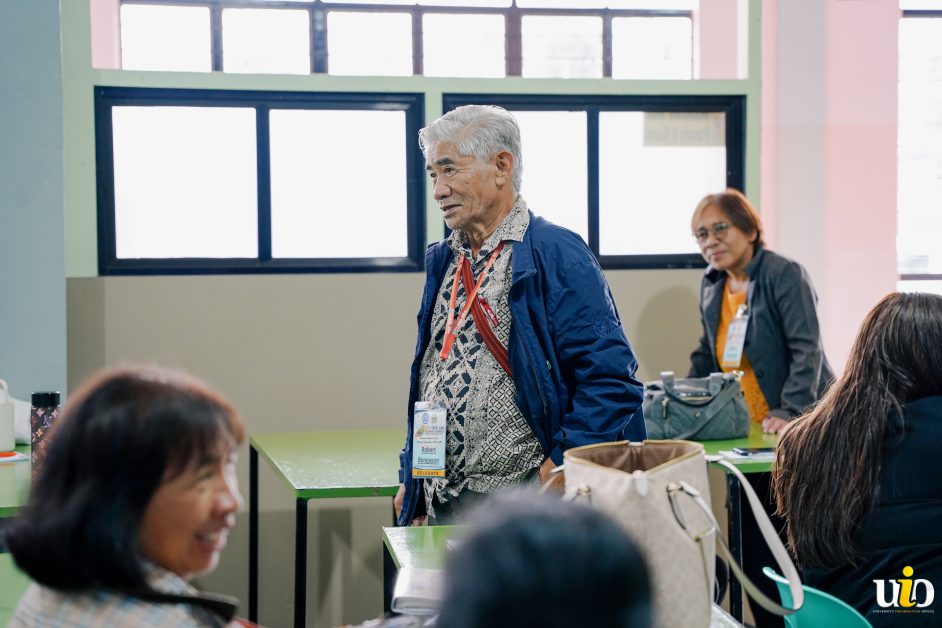
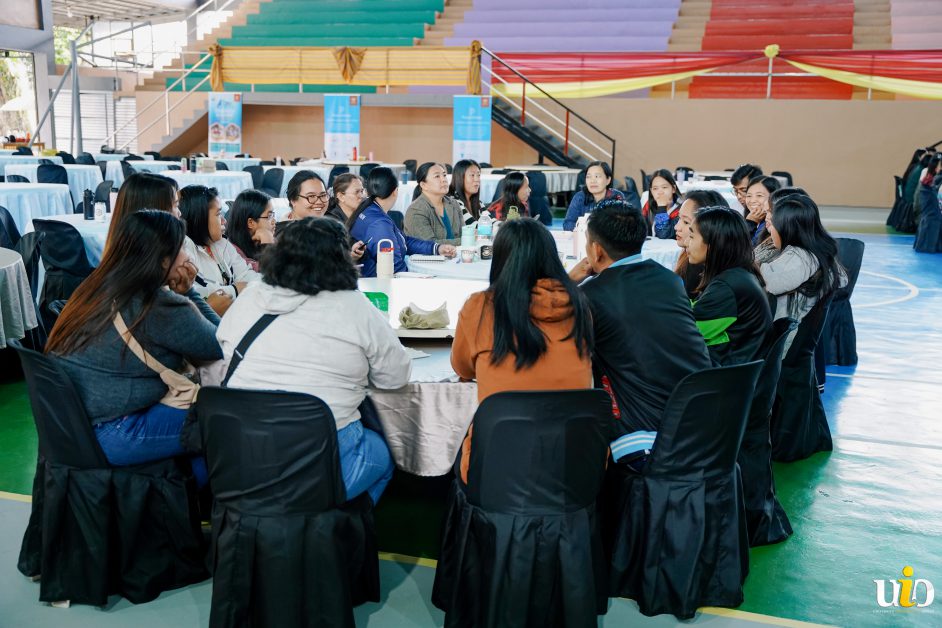
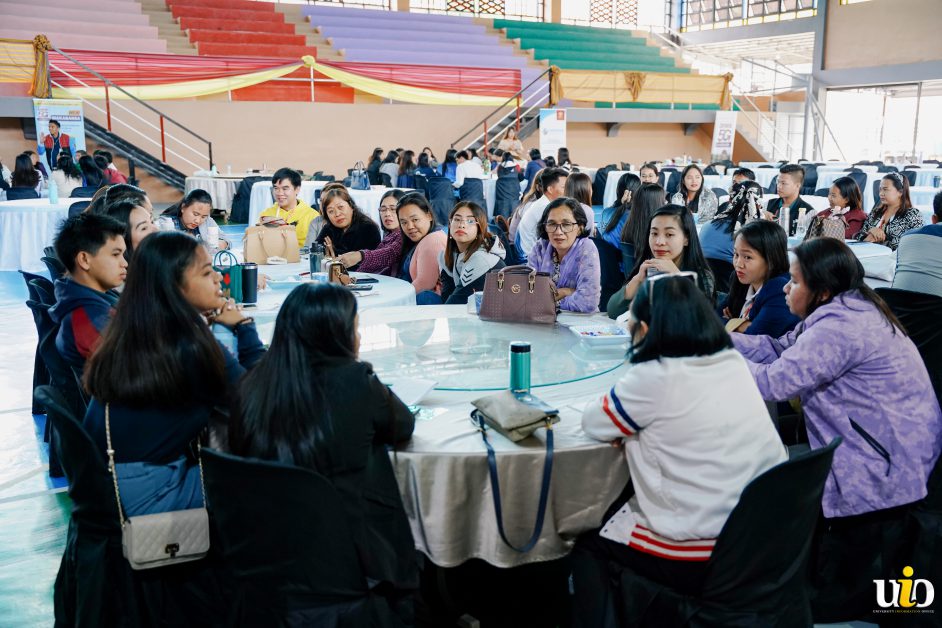
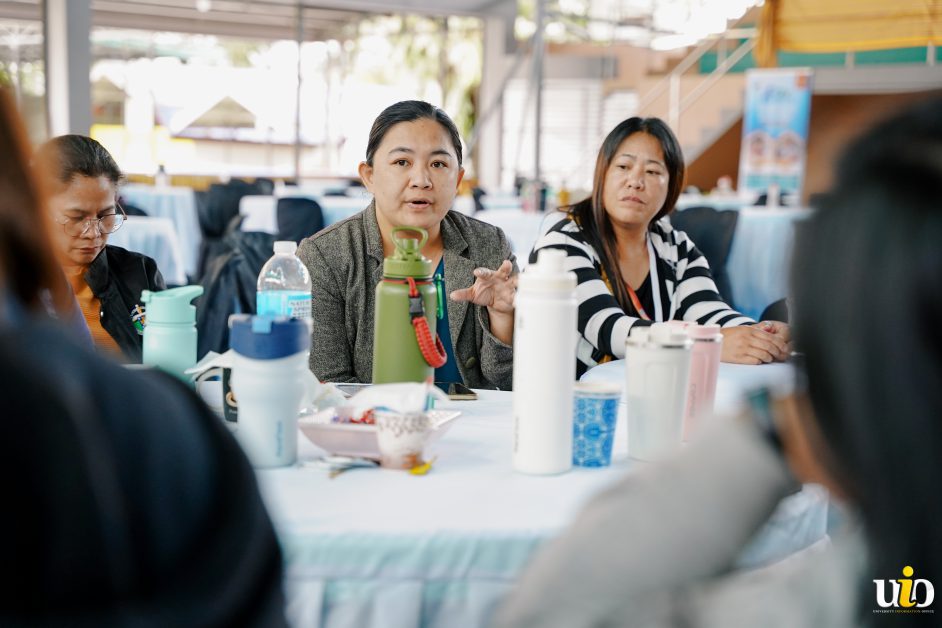
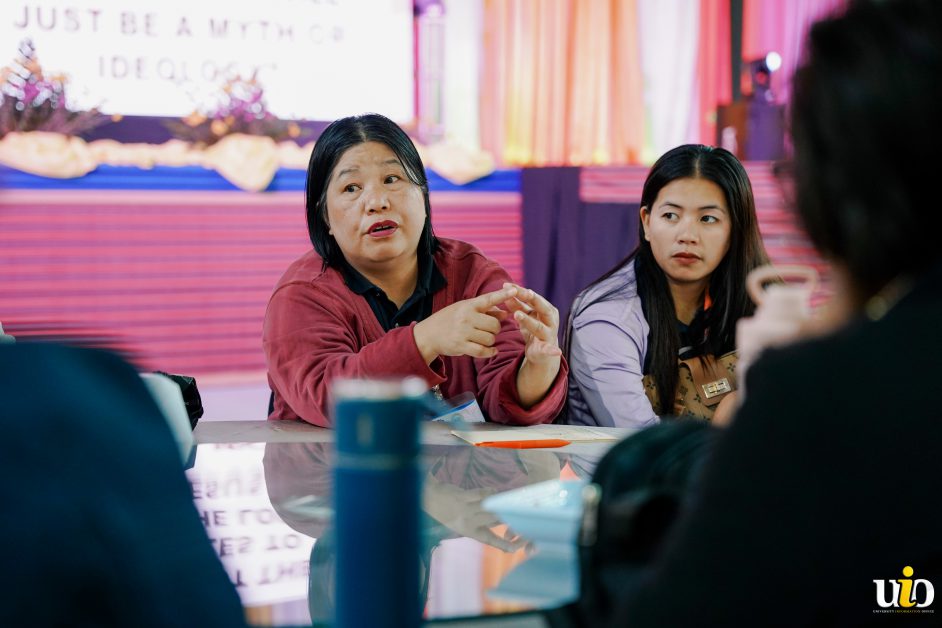
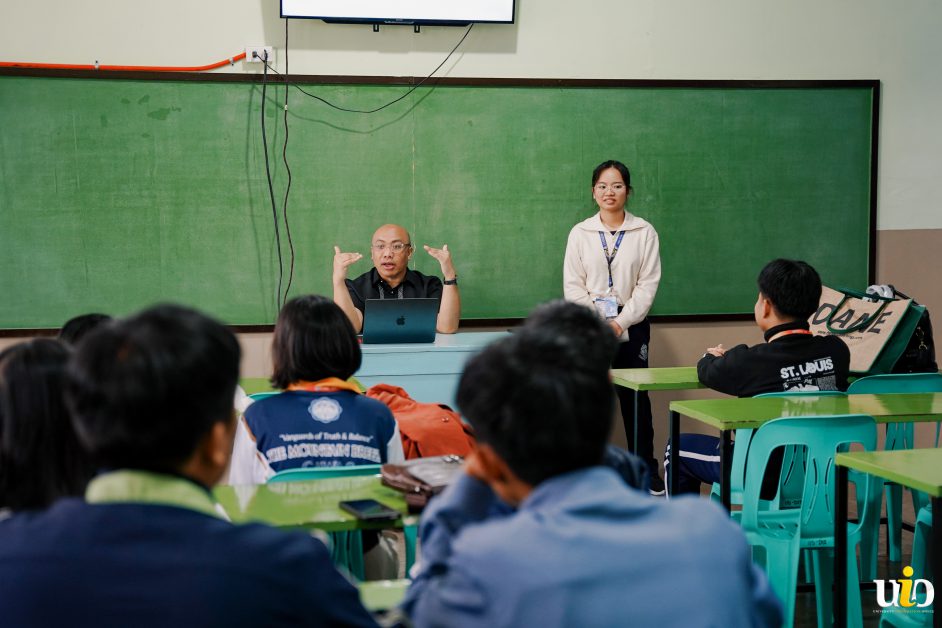
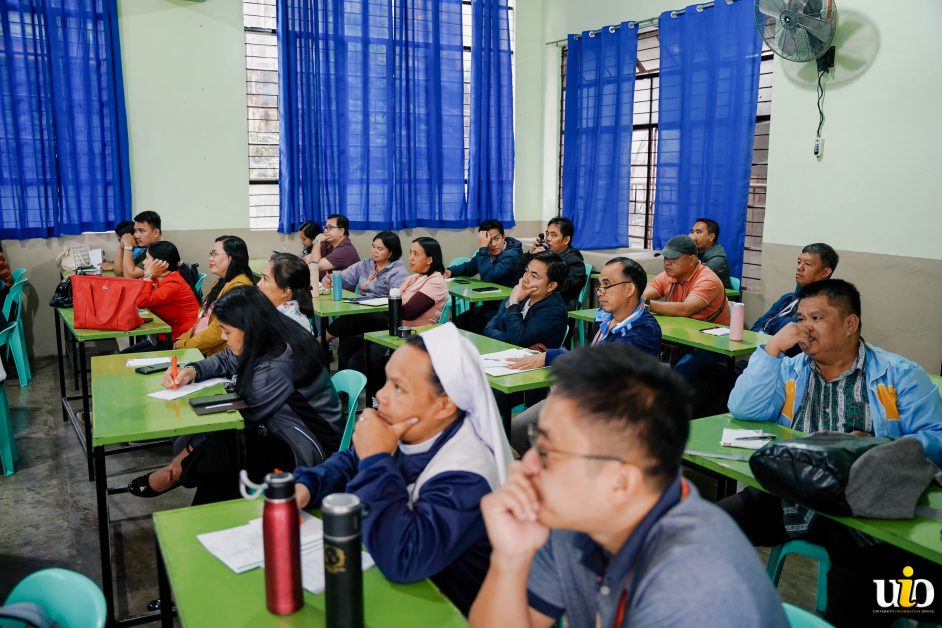
Continuing with the afternoon sessions, Mr. Francis Jim S. Tuscano, Digital Learning & Innovation Specialist, EdTech Coordinator, and Department Chair at Xavier School (San Juan, Metro Manila), explored the topic “Catholic Schools in the Era of AI and Technology.” He discussed how AI processes information through data input and its impact on the cognitive abilities of youth, drawing parallels to social media algorithms. “Part of social media is what we call algorithms, AI algorithms. The more you watch or view something on social media, the more that platform will feed you similar content until it becomes an echo chamber, limiting exposure to diverse perspectives. Social media algorithms are AI working under the hood of your devices,” Mr. Tuscano explained.
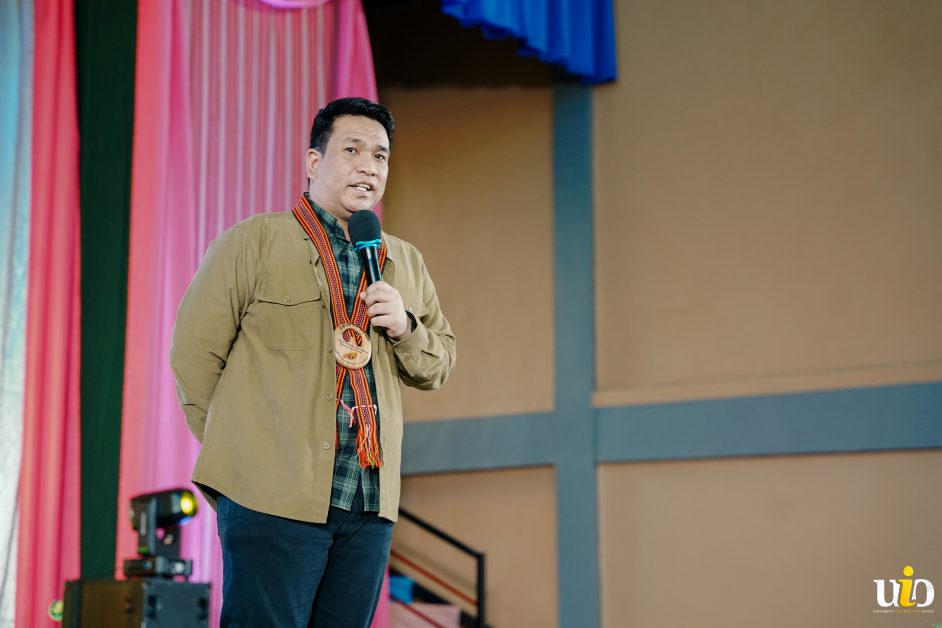
He also discussed the tedious amount of work educators have to go through, which can lead to overwork and burnout. That being said, Mr. Tuscano introduced an AI-powered Teacher Assistant Tool, “GabAI”, with the goal of “empowering teachers, not to replace them”. The tool can aid in lesson planning and design, gamification and differentiated planning for activities, assessment creation, and has a text and article differentiator tool.
Providing her insights for strategic direction and program management, the Executive Director of the Private Education Assistance Committee (PEAC), Ms. Rhodora “Doris” Fernandez Ferrer, talked about PEAC, the co-implementation of the expanded Government Assistance To Students And Teachers In Private Education Act (GASTPE), and the current initiatives of the committee towards increased support for private education. She expressed the importance of the private and public education as drivers under one educational system, but also shed light on the challenges faced as private institutions even though they contribute to the state goals and objectives of the Department of Education (DepEd) in Basic Education.
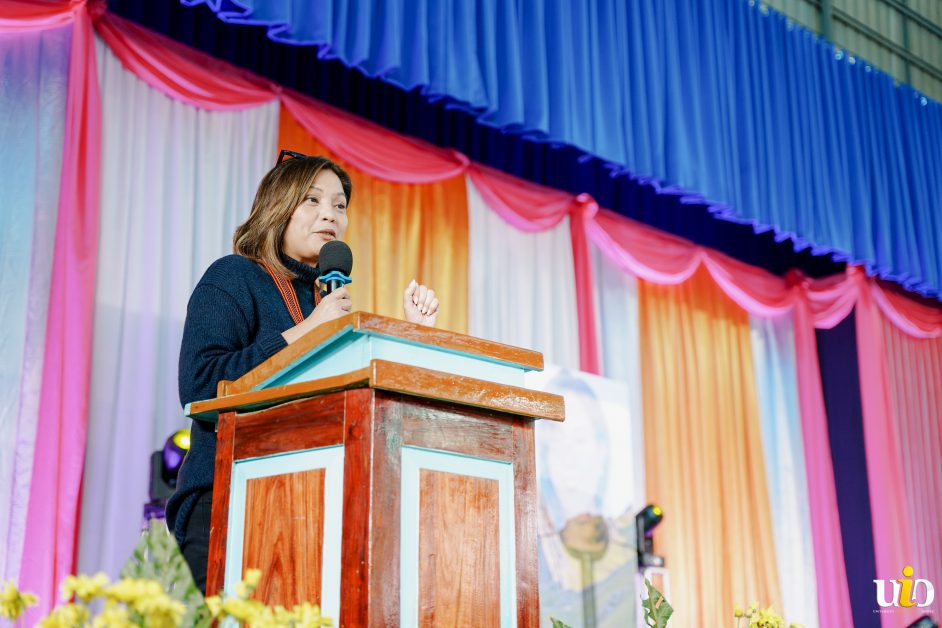
The next talk was by Regional Trustee of CEAP-Region III (Central Luzon), Mr. Narcy Ador Dionisio on “Catholic Schools as Agents of Hope”, providing an insight on the collective perspective of students on the classroom environment, where a student should not merely be ‘followers’ in a place of education, but should be at the center of it. “Kailangan yung spontaneity, yung naturalness ng estudyante ay ninu-nurture sa eskwelahan. Hindi pwedeng gumagawa tayo ng panibagong mundo sa loob ng classroom, o sa loob ng eskwelahan na hindi natin sila kasama. That is not your space anymore! That belongs to your students. That’s why every single classroom in a Catholic school is a sacred space for teaching empowerment.” Mr. Dionisio firmly stated.
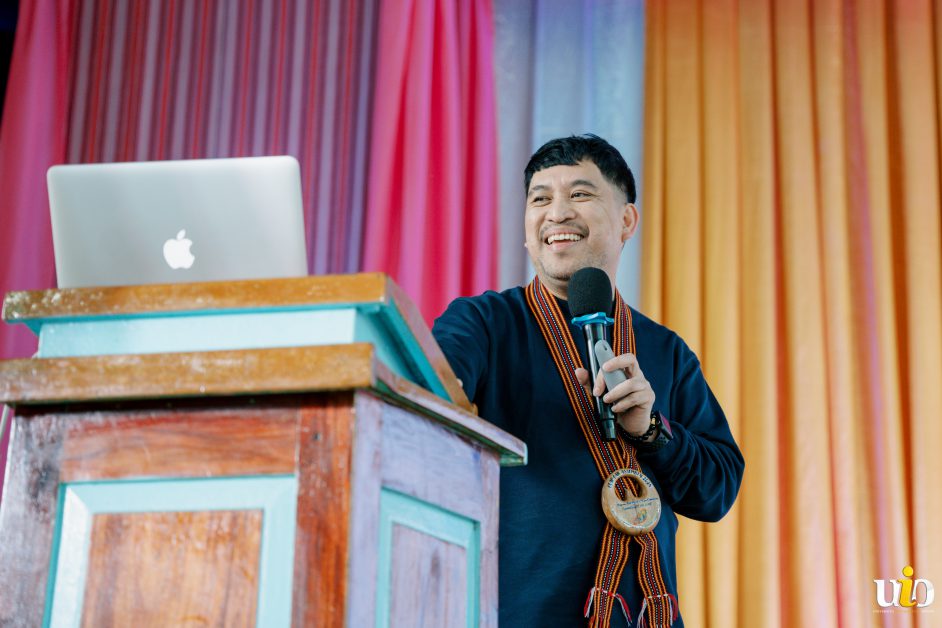
Fr. Sales then presented the CEAP-CAR report and said, “As we look ahead, rest assured that CEAP-CAR is committed to developing more essential programs that will not only address the needs of the youth, but also adapt to the ever-evolving educational landscape. Together, we will share a brighter future for our beloved students.”
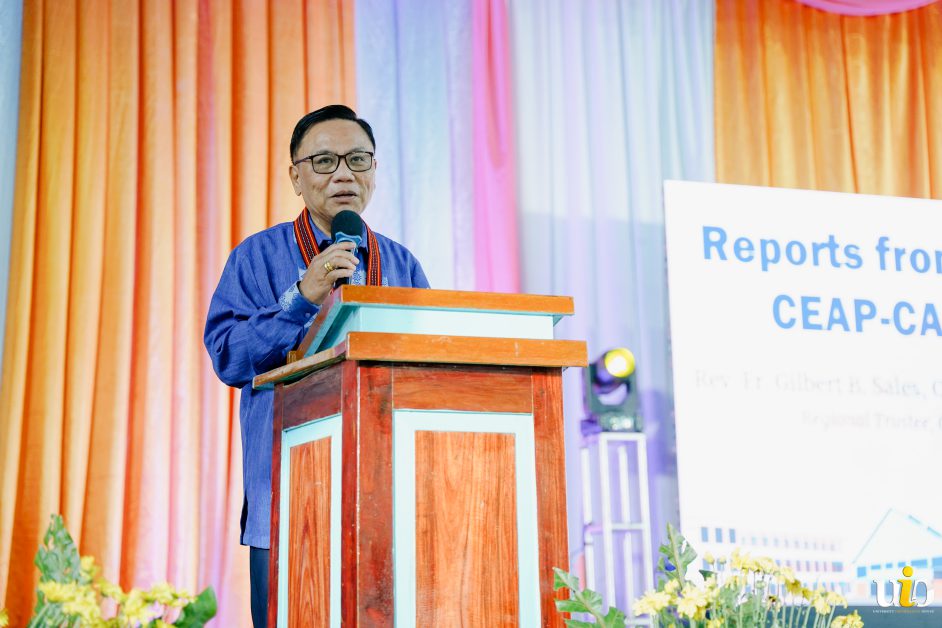
The last day of the assembly concluded with a closing ceremony highlighted by the sharing of insights and impressions by the delegates, a closing speech by Fr. Bay-ong, and a eucharistic celebration presided by the Bishop of the Apostolic Vicariate of Bontoc-Lagawe, His Excellency, Most Rev. Valentin C. Dimoc, DD.
Saint Louis University’s participation in the 2025 CEAP-CAR Regional Assembly affirms the University’s commitment, through its students and other stakeholders, to being pilgrims and agents of hope in the world by fostering an inclusive environment that values dialogue and mutual respect. This dedication, consequently, contributes to building a stronger CEAP-CAR community, united in purpose and faith and embracing the call to synodality.
The two-day assembly is aligned with the United Nations Sustainable Development Goals (UN-SDGs), specifically SDGs 4 (Quality Education), 16 (Peace, Justice, and Strong Institutions), and 17 (Partnership for the Goals). Furthermore, it adheres to the six pillars of CEAP’s JEEPGY through Justice and Peace, Engaged Citizenship, and Youth Empowerment, as well as SLU’s Justice and Peace under the Justice, Peace, Integrity of Creation, and Indigenous Peoples’ Advocacy (JPIC-IPA). (Article by Agnes Dela Peña, UIO Volunteer | Photos by Arnmari Dela Cruz, UIO Volunteer)
